MAY and Company News/Insights
IMF Program Completion
The IMF approved the final review of Zambia’s extended credit facility.
Zambia Sugar Valuation
Zambia Sugar reaches 1 billion dollar valuation on the Lusaka Securities Exchange.
Inflation Rate Drop
Zambia’s inflation rate drops for both food and non food items.
2025 Copper Production Outcome
The country recorded copper production below the projected 1 million metric tonnes in 2025.
Zambia-Zimbabwe Hydro Project
Zambia and Zimbabwe each pledge $220 million to revive the Batoka Gorge hydroelectric project.
Local Participation in Mining
Increased Zambian participation in the mining sector as mining licenses surge.
Mining Taxes in Yuan
Zambia became the first African country to accept mining taxes in Chinese Yuan.
2023 TO 2025
DECEMBER 1, 2025, to DECEMBER 29, 2025.
Jubilee Metals Copper Production Surges
Jubilee Metals’ first-quarter copper output rose 65% following stable power supply.
US Firms Sign Investment Deals
Zambia Development Agency has signed three agreements with US firms involving critical minerals, digital infrastructure and economic diplomacy.
FQM Boosts Local Businesses
First Quantum Minerals spent $1.7 billion with Zambian registered businesses in the Kansanshi expansion.
Copper Export Earnings Surge
Zambia’s copper export earnings rose 31.2% to $920 million in October.
US Signals Readiness to Invest More in Zambia
Tanzania’s Amson’s Group has partnered with Zambia’s Exergy Africa Limited to develop 1,300MW of new power projects, backed by a $900 million investment.
Railways Modernization Boost
Government has released $4.5 million to modernise Zambia Railways, complementing €50 million in EU support.
Mutanda-Kaoma Road Project Launched
Zambia launched the $326 million Mutanda-Kaoma road under a 25-year PPP, upgrading 371 km to a highway.
Bulk Petrol Importation
A four-month pilot for bulk petrol importation has been approved.
Zambia Sugar Announces Expansion
Zambia Sugar plans a $132 million expansion to increase capacity to 500,000 tones, enhance irrigation, warehouse facilities, and power generation.
JUNE 1, 2025, to JUNE 30, 2025.
🏆 Continued Excellence: May & Company Recognized Again in The Legal 500!
💡 We are pleased to share that we continue to be recognized as a leading firm in The Legal 500.
Join us in congratulating Harriet Mdala and Chanda Musonda-Chiluba for being highly ranked once again in Legal 500.
🌟 MAY and Company Supported ACL Conference 2025 as Gold Sponsor
MAY and Company proudly joined this year’s highly anticipated ACL Conference 2025 as a Gold Sponsor.
As a dynamic full-service corporate law firm, MAY and Company has continued to provide comprehensive legal solutions across arbitration, business formation, M&A, employment, compliance, data privacy, and more. We were incredibly grateful for their generous support and contribution to the event’s success.
📍 The conference took place in Nairobi, Kenya, bringing together legal professionals from across Africa to connect, collaborate, and innovate in construction law.
To learn more about MAY and Company, visit: https://mayandco.law/en/
🎤 Harriet Mdala Spoke at the ACL Conference 2025 in Nairobi
Our Partner, Harriet Mdala, participated as a speaker at the Africa Construction Law (ACL) Conference 2025, which took place on 22 May in Nairobi.
She joined an esteemed panel including Joana Brandão, Paula Ochango, Ayodele Adeyemi-Faboya, Rajat Singla, and Pawel Piotrowski to discuss the topic:
“Improving Project Bankability: The 90% Challenge.”
The session offered valuable insights into strategies that can enhance project viability across the continent.
🔗 Learn more: https://lnkd.in/gsduXZGp
🏁 May & Company Took On the Isuzu Mud Run
Our team recently took on the Isuzu Mud Run. From physically demanding challenges to teamwork-fueled obstacles, we demonstrated the same collaboration, commitment, and tenacity that we bring to every challenge.
🔍 Harriet Mdala Joined Industry Leaders at the ACL Conference to Tackle Infrastructure Challenges
Our Partner, Harriet Mdala, spoke at the Africa Construction Law (ACL) Conference, where she joined Joana Brandão, Paula Ochango, Ayodele Adeyemi-Faboya, Rajat Singla, and Pawel Piotrowski in an engaging discussion on:
“Why do 90% of African infrastructure projects fail at the feasibility stage?”
Key takeaways included:
The need to prioritize and invest in early-stage project preparation and capacity building;
The importance of the 3 Cs—capacity, control, and cost-effectiveness—in aligning risk with the most capable party; and
Addressing challenges related to sovereign guarantees, including alternatives like debt reserve service accounts, which impact project costs and tariffs.
We are proud to have contributed to this vital conversation on improving Africa’s infrastructure landscape.
#MAYandCompany
#AfricaConstructionLaw
#ACL25
Grateful for Our Role in the 5th Africa Construction Law Conference
We appreciated the recognition we received for supporting the 5th Africa Construction Law (ACL) Conference, which highlighted thought-provoking discussions on The Future of Construction in Africa.
The sessions emphasized that shaping the future of the industry required collective effort, innovation, and bold ideas. Our team contributed to this important dialogue and committed to continuing this path well beyond the event.
Our dedication to the growth and transformation of construction law and practice across the continent remains as strong as ever.
🎓 Celebrating the Achievement of Chilufya Lwando-Sinkala
We would love to congratulate Chilufya Lwando-Sinkala, who graduated on 24 April 2025 with a Master of Corporate and Commercial Law from the University of Lusaka.
What began as a desire for professional growth and a stand against academic stagnation turned into a journey marked by personal and professional challenges. Through it all, Chilufya persevered, and now celebrates a story of growth, resilience, and triumph.
All’s well that ended well — congratulations once again! 🎊👏
🎓 Congratulations to Our Recent Graduates from MAY and Company!
A huge congratulations to Nsunge Makonda, Benny Ethan Nkhowane, Boniface Kalemba, Kenneth Bwembya, and Kuzanga Chipeta on their graduation! Their hard work and dedication had truly paid off.
We warmly welcomed them to the legal profession — the future looked bright!
#MAYandCompany
✨ Reflections on the 9th ICC Africa Conference
We would love to share that the 9th International Chamber of Commerce (ICC) Africa Conference truly flew by. We connected with colleagues at the welcome cocktail and, before we knew it, there was a new Deputy Director for Africa — congratulations to Amara Inegbenoise on this well-deserved appointment!
We also caught up with fellow ICC Court members from various African countries and alumni of the ICC Africa Academy.
The sessions sparked thoughtful dialogue on:
The high burden required to obtain security for costs, tracing back to the initial choice to arbitrate;
The need to increase integrity in the arbitral process by maintaining high standards for disclosure and transparency;
And the evolving role of AI in African arbitration.
Key takeaways included:
Verification of AI-generated results is essential, as courts have reprimanded counsel for negligent use.
AI is improving rapidly, with increasingly well-defined roles for its responsible use.
These conversations set the stage for an exciting future in African arbitration.
🌍 Honouring Moments of Connection with Africa Arbitration Academy Alumni
We would love to share this powerful moment of reflection and camaraderie as members of the Africa Arbitration Academy — from the 2019 cohort to the present — came together to reconnect and celebrate their shared journey.
It was inspiring to see the growth of this vibrant alumni community, united by a commitment to the continued advancement of arbitration in Africa.
Among those present were:
Dr. Abayomi Okubote, FCIArb, MBA, Dr. Ademola Bamgbose, Femi Gbede, MBA, Evelyne W. Kimani, Cynthia O., Noreen Kidunduhu, Khayran Noor, Patson Wilbroad, Arinaitwe, FCIArb, and Samuel Mbiriri Nderitu, FCIArb, FMIArb.
🤝 Reconnecting at AEF 2025 in Cape Town
We would love to share this moment from AEF 2025 in Cape Town, where our friends connected with us, Zambia.
It was a pleasure being mentioned and appreciated during the event. We’re always grateful for opportunities to build meaningful regional connections in the energy and legal sectors.
April 1, 2025, to May 1, 2025.
Finance
Moody’s raised Zambia’s outlook to positive but maintained the Caa2 rating due to ongoing fiscal risks.
Mining
| |
Energy
The Ministry of Energy cut solar project approval time from 6 months to 48 hours to add 1000 MW of solar power by 2025.
Recycling Project
Private partner sought to develop a waste-to-energy or resource recovery facility at Lusaka’s Chunga Landfill through a Public-Private Partnership.
Electricity Expansion
The Zambia-Tanzania Power Interconnector Project will begin construction later this year and aims to be completed by 2027.
Power Grid Addition
| |
Lobito Project
Zambia and Angola have signed agreements on the Lobito Corridor and aviation.
LONGi Collaboration
LONGi to advance a clean energy partnership, focusing on solar tech, skills training, and advanced green infrastructure.
Agriculture
Zambia plans to become a major beef exporter to diversify its economy beyond copper, targeting $1B annually.
Upcoming events
Legal Update
The Mumbezhi copper project has been granted two large-scale mining licenses, now closer to the goal of producing three million tonnes of copper annually by 2031.
march 7, 2025 to april 2, 2025..
Mining
The government is tightening oversight on mining storage facilities after multiple pollution incidents, involving mines.
Energy
| |||
Mumbezhi Milestone
The Mumbezhi copper project has been granted two large-scale mining licenses, now closer to the goal of producing three million tonnes of copper annually by 2031.
Mimbula Expansion
Ecora has entered a $50-million copper stream agreement with Moxico Resources for its Mimbula mine in Zambia.
Indeni Investment
Indeni Energy needs $250 million to fully operate and will supply low-sulphur gas oil via the TAZAMA pipeline in April 2025.
Grid Expansion
| Zambia and Mozambique signed agreements to develop the Mozambique-Zambia Power Interconnector, with an estimated cost of USD 500 million. |
Solar Initiative
With a target of 1000 megawatts of solar power generation by the end of 2025 to address Zambia’s energy deficit, there is a call for collaboration from stakeholders and financial institutions.
DRC Expansion
The Copperbelt Energy Corporation plans to invest US$500 million to expand solar power output and double its power transmission capacity to the Democratic Republic of Congo
Agriculture
The $35 million Bayer Itaba Seed Plant in Kabwe is expected to expand Zambia’s seed exports.
Zambia Integrates
Finance
Zambia has granted over K9 billion in tax breaks over the past three years to attract investment and ease the tax burden on local industries.
Flutterwave in Zambia
Flutterwave has officially secured a Payment System License, providing cross border payment solutions.
march 7, 2025.
Solar initiative
ZESCO signed PPAs with 29 IPPs for 332MWp of solar capacity, advancing Zambia’s renewable energy goals.
Energy
The Electricity Open Access Platform has been launched to enable access to Zambia’s power networks for independent producers.
Roan Operations
Jubilee Metals is restarting its Roan operations in Zambia, following a stable power supply and the processing of high-grade copper feed to accelerate production.
Finance
The Bank of Zambia has introduced new notes and coins.
Copperbelt Exploration
Egypt-Zambia
President El-Sisi and President Hakainde Hichilema signed agreements to strengthen bilateral ties, enhance development, and explore investment opportunitie
Logistics boost
$300 million DP World investment, with President Hichilema now advocating for the development of ports at Walvis Bay and Dar-es-Salaam.
Barrick Collaboration
Barrick Gold Corporation signed a Memorandum of Understanding (MoU) with Zambia which advances its Lumwana expansion.
Legal Update
| |
Tax Suspension
Zambia has suspended a 15% export tax on precious stones and metals.
Mining
Vedanta Resources seeks $1 billion to boost Konkola Copper Mines’ output, while retaining its 80% stake.
December 2024 to February 2025
 Fun-Filled Friday: Popcorn & Surprises with MAY and Company!
Fun-Filled Friday: Popcorn & Surprises with MAY and Company! 


hashtag#MAYandCompany
Economic Growth Through ADR in Emerging Markets – Key Insights from Lusaka Arbitration Week 2025
Mulopa Ndalameta MCIArb moderated a session on Economic Growth Through ADR in Emerging Markets during Lusaka Arbitration Week 2025.
Key Takeaways:
- ADR served as a catalyst for economic growth by providing efficient dispute resolution mechanisms.
- It responded to commercial needs by enabling specialized resolution of disputes.
- Governments played a crucial role in promoting ADR and supporting its ecosystem to enhance business confidence and economic development.
#ADR #DisputeResolution #EconomicGrowth #LusakaArbitrationWeek2025
Key Insights from Lusaka Arbitration Week 2025 – Day 1
Lusaka Arbitration Week 2025 set the stage for thought-provoking discussions on the future of dispute resolution and the evolving role of ADR in emerging markets.
Key Takeaways from Day 1:
Promoting Swiftness in Dispute Resolution
Disputes should not hinder progress. The longer a dispute remained unresolved, the more it undermined the purpose of a project. ADR practitioners emphasized the need for efficiency, as unresolved disputes in critical sectors—such as energy, infrastructure, and healthcare—left millions without essential services.Demystifying ADR
ADR was not just for the elite. It mirrored traditional dispute resolution methods used by community leaders, much like King Solomon’s wisdom in resolving conflicts. The need to make ADR accessible and widely understood was a central theme.Energy PPPs – Energy as a Human Right
Access to energy was recognized as a fundamental right. While PPPs in the energy sector focused on commercial viability, they also needed to address energy deficits sustainably. However, concerns were raised about Power Purchase Agreements (PPA) and Power Supply Agreements (PSA), as their fine print often created long-term financial burdens for governments and consumers.In dispute resolution, clauses should not become financial traps where resolving conflicts was so costly that parties felt forced to accept unfavorable terms.
The Need for Robust Legal Frameworks for Energy PPPs
For energy PPPs to be effective, countries needed strong legal frameworks ensuring transparency, fairness, and adaptability. Well-regulated PPAs and PSAs prevented imbalances where one party (often the off-taker) bore excessive risks. A solid legal foundation fostered investor confidence while ensuring disputes were resolved without stalling development.
Looking forward to Day 2, where discussions focused on Construction Adjudication, the Role of Courts in ADR, and FIDIC in Focus.
#ADR #DisputeResolution #LusakaArbitrationWeek2025
Zambia this month
We are sharing valuable insights, legal updates, and industry trends. If you wish not to receive these insights, you can unsubscribe at any time.
May and Company Was a Silver Sponsor for Lusaka Arbitration Week 2025
May and Company was proud to be a silver sponsor for Lusaka Arbitration Week 2025. This partnership reflected a commitment to advancing arbitration and alternative dispute resolution in the region. The event was a great success, fostering insightful discussions and meaningful connections.
#Arbitration #ADR #Lusaka #LAW2025 #CIArb
May and Company Contributes to Chambers and Partners 2025 Global Practice Guide on Zambia’s Mining Sector
We are delighted to be a contributor for Chambers and Partners 2025
Global Practice Guide. Our commentary on Zambia’s Mining sector covers regulatory developments, legal risks, investment opportunities, and emerging industry trends.
View the whole article here: https://lnkd.in/djUuRa79
hashtag#MAYandCompany hashtag#Miningsector
May and Company Recognized Among Top Global Law Firms in Chambers and Partners 2025 Rankings
We are proud to announce that the firm and the partners have been highly ranked in the global rankings for Chambers and Partners 2025.
Chanda Musonda-Chiluba and Harriet Mdala have been ranked under the General Business category.
Yosa Yosa has been ranked under the Dispute Resolution category.
This recognition places us among the leading law firms globally, reaffirming our excellence, expertise, and unwavering commitment to our clients. We remain committed to setting the standard for legal excellence.
hashtag#MayandCompany hashtag#ChambersandPartners
May and Company Reflected on a Successful Mining Indaba 2024
As Mining Indaba came to a close, May and Company played a pivotal role in shaping key industry conversations.
At the Ministerial Symposium, the team—Jonathan Veeran, Rita Spalding, Bruce Dickinson, Mzukisi Kota, Nomsa Mbere, and Meluleki Nzimande—facilitated dynamic roundtable discussions on crucial topics, including Issuance of Permits and Increased Exploration and Downstream Value Addition and Resource Stewardship.
In collaboration with DMT, a gathering was hosted at Jonkerhuis, where senior industry leaders explored the future of African mining in an evolving global landscape.
The panel discussion, Sustainable Growth in Sub-Saharan Africa’s Mining Sector: Balancing Critical Mineral Demand with Human Rights, addressed the challenges of driving growth while upholding responsible mining practices. Moderated by Pooja Dela, the session featured insights from esteemed industry leaders, including Rohitesh Dhawan, Marna Cloete, Maria Ramos, Paula-Ann Novotny, and Mfikeyi Makayi.
Together with Webber Wentzel and Janson, a thought leadership dinner was hosted on Unlocking the Copperbelt: Opportunities in the DRC, Zambia, Angola, and Southern Africa’s Critical Minerals Market, examining regional opportunities and sustainable mining strategies.
Finally, a networking event provided a valuable platform to connect with clients and industry peers, fostering meaningful discussions on the future of Africa’s mining sector.
May and Company remains committed to driving sustainable growth and innovation across the continent’s mining industry.
#MiningIndaba #SustainableMining #AfricaMining #CriticalMinerals #HumanRights #WebberWentzel #UnlockingOpportunities #SouthernAfrica #BusinessAndHumanRights
Let me know if you’d like any adjustments!
Reflecting on Samuel Muleya’s Experience at the Webber Wentzel Litigation Associate Foundation Programme
MAY and Company is proud to highlight that Samuel Muleya attended the Webber Wentzel Litigation Associate Foundation Programme in Johannesburg. This immersive experience covered a wide range of topics, including drafting pleadings, arbitration, ADR, documentary evidence, and more.
It was an excellent opportunity for Samuel to connect with other litigation associates and learn from their valuable experiences. We would like to extend our sincere gratitude to Webber Wentzel for organizing this invaluable training opportunity, and to our firm for continuously supporting Samuel’s professional development and growth.
We are confident that the knowledge and skills gained during this week will be applied to better serve our clients.
Unlocking the Copperbelt: Exploring Critical Minerals Opportunities in Southern Africa
On Monday, February 3, 2025, we jointly hosted a Thought Leadership Dinner titled Unlocking the Copperbelt: Opportunities in the DRC, Zambia, Angola, and the Broader Southern Africa Critical Minerals Opportunities, together with Webber Wentzel and Janson Africa.
We are grateful to everyone who attended the event.
Unlocking the Copperbelt: Insights and Opportunities in Southern Africa’s Critical Minerals
We are looking forward to connecting and sharing insights around the Mining Indaba.
Celebrating Natasha Kachema Lungu’s Completion of the Corporate Associate Foundation Program
MAY and Company is proud to acknowledge Natasha Kachema Lungu for successfully completing the Corporate Associate Foundation Program at Webber Wentzel. The final day of the program included insightful sessions on takeovers, takeover offers, business sale case studies, and group discussions.
This comprehensive program provided invaluable insights into corporate law topics, facilitated by industry experts, and offered exceptional networking opportunities with fellow professionals.
We extend our gratitude to Webber Wentzel for organizing such an enriching experience and for their dedication to advancing the legal profession. MAY and Company remains committed to supporting Natasha’s career development and professional growth.
Natasha Kachema Lungu’s Journey Through the Corporate Associate Foundation Program
MAY and Company is delighted to highlight Natasha Kachema Lungu’s participation in the Corporate Associate Foundation Program at Webber Wentzel in Johannesburg. Over the past two days, the program has provided invaluable insights into key aspects of private mergers and acquisitions (M&A), including:
- Conducting transactions, share sales, and closing M&A deals
- Memorandum of Incorporation and Shareholders’ Agreements
- Contract drafting and business sales
This opportunity to learn from seasoned professionals has been instrumental in expanding Natasha’s knowledge of corporate law. As the program continues, we look forward to seeing Natasha benefit even further from this enriching experience.
Reflecting on the Beaujolais Nouveau Event
On Wednesday, 4 December 2024, MAY and Company had the privilege of attending the Beaujolais Nouveau event hosted by the French Business Circle.
The occasion was an exceptional experience, filled with meaningful connections and an appreciation for French culture and business.
We extend our sincere gratitude to the French Business Circle for organizing such a memorable event.
Celebrating the End of 2024 in Style: Forties Soirée – Glamour of the Golden Age!
On 6 December 2024, MAY and Co held its End of Year party with the theme:
“Forties Soirée: Glamour of the Golden Age!”
MAY and Co at the 2024 AmCham Thanksgiving Dinner
On Thursday 14 November 2024, MAY and Co attended the 2024 AmCham Thanksgiving Dinner hosted by the American Chamber of Commerce in Zambia.
Thank you to AmCham for hosting an incredible event.
Closing the Year with Insightful Sessions on International Arbitration in Casablanca
Faculty and cohort convened in beautiful Casablanca for thought-provoking sessions on international arbitration under the ICC rules. Discussions covered the taking of evidence, parameters of discovery, appointing and examining experts, and challenges to tribunals based on conduct. These sessions served as a great build-up to the ICC North Africa Day on emerging arbitral institutions. It was truly no better note on which to close off the year.
Sweet Surprise: Ice Cream Truck for This Week’s Anything Can Happen Friday!
🎉🍦We surprised the team with an ice cream truck for this week’s Anything Can Happen Friday..
MAY & Company Renews Partnership with ZAM for Growth in the Manufacturing Sector
MAY & Company was pleased to announce that two months ago, it renewed its Memorandum of Understanding (MoU) with the Zambia Association of Manufacturers (ZAM). The signing ceremony, which took place during ZAM’s Annual General Meeting, was officiated by the Honourable Minister of Commerce, Trade, and Industry, Honourable Chipoka Mulenga.
The MoU highlighted their shared commitment to the growth and success of Zambia’s manufacturing industry. It was reported that through this partnership, MAY & Company would continue to provide ZAM with essential legal support, enabling the association to effectively pursue its objectives.
MAY & Company expressed pride in playing a role in fostering an environment where manufacturers could thrive and contribute to Zambia’s economic development.
MAY & Company Supports Barotse Highway Limited in Milestone Infrastructure Agreement
MAY & Company was pleased to announce its role as legal advisors to Barotse Highway Limited, the concessionaire for the Concession Agreement signed two months ago for the Design, Build, Finance, Operate, Maintain, and Transfer (DBFOMT) of the 371km Mutanda to Kaoma Road in Zambia’s North-Western and Western Provinces.
This milestone agreement marked the beginning of a transformative infrastructure project that aimed to open up the western corridor of Zambia into Walvis Bay in Namibia. Once completed, the corridor was set to enhance regional trade flows with key partners, including South Africa, Namibia, and the Democratic Republic of Congo (DRC).
MAY & Company expressed pride in contributing to impactful projects that drive economic growth and regional integration.
The firm extended its heartfelt appreciation to all those who worked tirelessly to make this agreement a reality: Barotse Highway Limited, First Quantum Minerals, Hotsheet Pty, Herbert Smith Freehills, and Pangaea Securities.
Completion of ‘An Introduction to Construction Law and Dispute Resolution’ Training Course
MAY & Company is pleased to share that Hellen Chitalu Chileshe recently completed a training course themed ‘An Introduction to Construction Law and Dispute Resolution’, offered by the Africa Construction Law (ACL) Training Academy in conjunction with the Centre of Construction Law and Dispute Resolution at King’s College London and HKA.
The course covered a range of essential topics, including:
- Application of FIDIC contracts
- Claims management
- Risk management
- Delay and disruption
- Understanding the issues relating to the evaluation of quantum
- Dispute resolution
While all the sessions were valuable, Hellen found the module on the evaluation of quantum issues, delivered by Thomas King, Igor Corelj, and Martin Campbell, particularly enlightening. The session covered the legal test for damages and provided an in-depth look at both cost-based and value-based approaches to valuation. It also offered valuable insights on quantum fundamentals.
The knowledge and insights gained from this course have significantly expanded Hellen’s understanding of construction law, particularly in the nuanced application of FIDIC contracts and the complexities of dispute resolution. Hellen looks forward to applying these insights and skills to enhance her work.
Attending the 2024 INSOL International Africa Round Table on Insolvency Reform
MAY & Company is absolutely thrilled to announce that Mark Eldred Chomba is attending the 2024 INSOL International Africa Round Table on Insolvency Reform at the Avani Gaborone Resort in Botswana, hosted by INSOL International in collaboration with the World Bank Group and with invaluable support from the Botswana Judiciary.
Yesterday’s sessions were engaging and insightful, with one in particular that resonated deeply. The keynote address on artificial intelligence, delivered by Maurice Conti, a visionary and global thought leader in AI and emerging tech, made a significant impact. Maurice emphasised that businesses should focus not on whether AI will bring good or bad outcomes, but on how to leverage AI and technology to stand out in their industry. In today’s competitive landscape, businesses that adapt and effectively utilize AI will lead, while those who delay may find themselves playing catch-up.
Mark Eldred Chomba is eager to dive into today’s sessions and explore how to navigate the evolving landscape of insolvency and restructuring. The opportunity to connect with peers and thought leaders at this event has been incredibly rewarding.
Our Firm's Insights
june to october, 2024
Zambia’s Minerals Bill: Strengthening Mining Regulation and Boosting Investment Potential – By Maloba Nalomba
Zambia’s Minerals Bill, an amendment to the Mines and Minerals Development Act of 2015, introduces targeted adjustments to enhance mining regulation, not a full overhaul. The bill establishes the Minerals Regulation Commission, tasked with managing mining regulations independently, and a Mines Appeal Tribunal for dispute resolution, promoting efficiency and investor confidence. It caps mining rights per entity at five, with government interests in exploration areas. The Geological Bill mandates local-content requirements, creating a unit in the Ministry of Mines to enforce compliance. Zambia’s rich mineral resources and planned EV battery manufacturing park further position the country as a key investment hub.
Maloba Nalomba Joins The MAY and Company Team as Partner
We’re excited to welcome Maloba to our team!
Maloba brings extensive experience in managing mergers and acquisitions for private and public companies, offering commercial and corporate advisory expertise, and achieving significant judgments in employment, contract, and real estate law.
We look forward to the fresh perspectives and valuable opportunities Maloba will bring to MAY and Company.
MAY and Company Publishes Article on Review of the Minerals Regulation Commission Bill
MAY and Co has prepared an insightful article on the new proposed Mining Bill.
Stay informed and ahead of the curve.
MAY and Company Publish Article on Operationalisation of the Open Access Regulation
MAY and Co has prepared an article on the recently enacted Electricity (Open Access) Regulations, SI No 40 of 2024. Get ahead on this critical regulatory shift.
Hellen Shares Insights on Important Aspects of Land Ownership and/or Property Rights
Ms Hellen Chitalu Chileshe, Associate at MAY and Company shares her insights on the importance of caveats in protecting parties’ rights in property deal-making on a podcast with Financial Insights Zambia.
Hlezipe Alexis Halwiindi, attends the Competition & Economic Regulation (ACER) week and 11th Annual CAK Symposium on Competition Law in Nairobi Kenya
Hlezipe, representing MAY and Company, commenced Day 3 of the PTP with a lecture on merger control and cartels in the regional market, presented by Boniface Makongo, Director of Competition at COMESA Competition Commission. Mr. Makongo discussed the cross-border impacts of mergers, cartels, coordinated conduct, and approaches to mergers in digital markets.
Boniface Kamiti addressed the general principles of consumer protection, highlighting emerging issues in the digital market, including data privacy, misinformation, algorithmic bias, monopolistic practices, and hidden fees within subscription traps.
The lecture further explored the interconnectedness of competition and sustainability, focusing on safeguarding consumer rights while promoting business practices that support long-term environmental, social, and economic sustainability.
MAY and Company at Zambia Mining and Investment Insaka 2024
Our Corporate Partners, Chanda Musonda-Chiluba and Harriet Mdala, attended the Mining Insaka from October 7th to 11th, 2024.
MAY & Company had the privilege of attending the inaugural Zambia Mining & Investment Insaka, where the keynote address was delivered by President Hakainde Hichilema.
A key legal development highlighted by the President was the status of the proposed Mines Bill which was set to repeal the current mining legislation. The President informed the mining sector that the Bill has been withdrawn from the legislative process to allow for further stakeholder consultation, specifically targeting key players within the mining industry.
In light of this pronouncement, it appears that the Bill will not proceed to enactment in the near term, pending the outcome of these consultations.
MAY and Company at the International Bar Association Annual Conference in Mexico City
Our Partner Yosa Yosa, attended the 2024 International Bar Association Annual Conference in Mexico, fostering valuable connections and gaining insights into the latest legal developments.
May to june, 2024
MAY and Company Host Webber Wentzel for The 2024 TRALAC
Bruce Dickinson, Matthew Pool, Meluleki Nzimande and Yael Shafrir were in Zambia to connect with international trade law counterparts and discuss the latest developments in the field.
They were thrilled to be hosted by our firm, MAY and Company.
Grace, Harvey and Diana’s Graduation
We celebrated our legal interns Grace Banda, Harvey Bwalya and Diana Chileshe for graduating and earning their law degrees from UNZA!
Their hard work, dedication, and passion have truly paid off. Welcome to the legal profession – the future looks bright!
Mulopa Ndalameta MCIArb attends the 2024 ICCAfrica
Mulopa Ndalameta MCIArb attends the #ICCAfrica from May 29th to 31st, 2024.
ICC created the Africa Commission to build capacity in the region and enhance awareness of, and access to, ICC’s dispute settlement know-how and globally reputed services.
The Commission aims to strengthen the arbitration infrastructure throughout the continent while engaging with a range of stakeholders to promote ICC Arbitration, as well as ICC’s alternative disputes resolution services.
Chaired by Thierry Ngoga, a member of the ICC Court and a managing partner at Legal Line Partners, the Commission works to raise awareness of the ICC Court as the leading institution for resolving disputes, while ambassadors will act as the voice of ICC in each African jurisdiction.
MAY and Company Celebrates One Year Anniversary
As we celebrate our one year anniversary, we are filled with gratitude for our clients, pride in our team and thankful to all who supported us.
february to april, 2024
Chanda, Hlezipe and Chilufya Attend the Women in Industry Soiree
Reflecting on an inspiring evening, Chilufya Lwando-Sinkala and Hlezipe Alexis Halwiindi attended the Women in Industry Soiree on 22 March 2024. The event was hosted by Zambia Association of Manufacturers.
Her Excellency Saana Halinen, the Finnish Ambassador, and Mrs. SUBETA K. MUTELO, Permanent Secretary of the Ministry of Small and Medium Enterprise Development, graced the occasion.
A night of celebration, networking, and empowerment. #WomenInIndustry #MayandCompany
Mulopa Ndalameta Co-Authors “Investment Protection in The Mining Sector – A Guide to Protecting Foreign Investments in Zambia
We are happy to share that our Partner Mulopa Ndalameta MCIArb has co-authored an invaluable guide to investment protection in the Zambian mining sector.
This article is the latest in our series looking at investment protection in the mining sector across Africa. In this edition, we focus on the protection of investments in the mining sector in Zambia. Read more: https://shorturl.at/orwBH
Insights by Scott Macpherson, Markus Burgstaller and Mulopa Ndalameta MCIArb (MAYandCompany)
Harriet Mdala and Chanda Musonda Recognized in Legal500
We are delighted to share that our partners, Chanda Musonda-Chiluba and Harriet Mdala have been recognised and ranked in Legal 500 as Next Generation Partners.
Please join us in congratulating Chanda Musonda Chiluba and Harriet Aalyiana Mdala on this well-deserved recognition!
MAY and Company Recognized as Tier 2 Law Firm
We are proud to announce that Legal 500 has ranked MAY and Company as a Tier 2 Firm. This is a massive achievement for the MAY team which, as a new player, is already being recognised as a leading Firm within the Zambian market.
Our clients have recognised us, stating, “MAY and Company have very experienced partners and associates. The staff are really friendly and very knowledgeable. They are also very responsive.”
Please join us in celebrating this recognition!
Hellen attends the Webber Wentzel Litigation Associate Foundation Programme
Our Associate Designate, Hellen Chitalu Chileshe, is attending the Webber Wentzel Litigation Associate Foundation Programme in Johannesburg this week!
Hellen will have the incredible opportunity to learn from the expertise of the Webber Wentzel team alongside peers from various jurisdictions.
We wish Hellen the best of luck and look forward to hearing about her enriching experiences at the Webber Wentzel Litigation Associate Foundation Programme!
Celia Shares Insights at BeyondChat. A discussion about the future of AI in Zambia
Our Innovation Lead, Celia sekani Nyirenda, shared insights on ‘Beyond Chat: Revolutionising Business with AI’ which was hosted by BongoHive Technology and Innovation Hub
Moderated by Chinedu Koggu, it was a discerning discussion about the future of AI in Zambia.
Celia offered valuable insights into the intersection of AI and business, drawing from her experience with the MAYbot.
Chanda and Yosa have a productive week at the Mining Indaba
Our Partners, Chanda Musonda-Chiluba and Yosa Yosa, had a productive week at this year’s Mining Indaba in Cape Town, fostering valuable connections and exploring exciting opportunities within the mining sector. We extend our heartfelt thanks to all who contributed to making this week a success!
We congratulate Hellen for Passing the ZIALE Legal Practitioners Qualification Exam
We extend a hearty congratulations to Hellen Chitalu Chileshe for passing the Legal Practitioners Qualifying Examination.
We are proud to have Hellen on our team, and her achievement serves as an inspiration to us all.
Please join us in congratulating Hellen on this well-deserved achievement.
january to february, 2024
Our Firm Welcomes New Talent
We are delighted to welcome three brilliant legal minds, George Mandanji, Grace Banda, and Diana Chileshe to our esteemed team at MAY and Company.
These talented individuals have recently joined us from the University of Zambia, bringing with them a fresh perspective to our legal practice.
As we continue to grow, we are committed to nurturing and developing young talents in the legal field. We believe in providing a platform for learning, growth, and hands-on experience, and George, Grace, and Diana embody the future of legal excellence.
Join us in welcoming these outstanding individuals to the MAY and Company family!
Chanda and Yosa attend the 2024 Mining Indaba
Chilufya participates in the Webber Wentzel Annual Associate Foundation Programme
Our Associate, Chilufya Lwando-Sinkala, is currently participating in the Webber Wentzel Annual Associate Foundation Programme held from January 29th to February 1st in Sandton.
Alongside associates from various jurisdictions, she’ll be actively engaging in discussions, sharing experiences, and gaining insights to elevate her corporate practice.
Wishing Chilufya a rewarding and insightful learning experience at the Webber Wentzel Associate Programme!
Mulopa Delivers a Message at the First Annual Chartered Institute of Arbitrators (CIArb) Young Members Group Zambia
We are thrilled to announce that our Partner, Mulopa Ndalameta MCIArb, in his capacity as a steering member of the Chartered Institute of Arbitrators (CIArb) Global, delivered a message to fellow young arbitration practitioners at the first annual CIArb Young Members Group, Zambia Symposium, held on February 9, 2024.
Mulopa assured the practitioners that the YMG is the safe space required to educate, socialize and mentor them.
NOVEMBER to DECEMBER, 2023
Chanda and Harriet, recognized as Rising Partners by IFLR1000
We are thrilled to announce that our Partners, Chanda Musonda-Chiluba and Harriet Mdala, have been recognized as Rising Partners in Zambia by IFLR1000 , 2023 Edition.
Chanda Musonda-Chiluba has been acknowledged for her expertise in M&A and Banking & Finance matters, showcasing her dedication and proficiency in navigating complex transactions.
Harriet Mdala‘s recognition is well-deserved, with her exceptional contributions in M&A and Project Development.
This accolade not only reflects the individual achievements of Chanda and Harriet but also underscores the collective strength and capabilities of the entire MAY and Company team.
MAY and Company attend the Annual General Meeting (AGM) of the Zambia Association of Manufacturers (ZAM)
Last week, MAY and Company had the honour of attending the Annual General Meeting (AGM) of the Zambia Association of Manufacturers (ZAM).
During this significant event, we were privileged to witness the esteemed presence of the Minister of Commerce, Chipoka Mulenga, and the President of ZAM who both highlighted the pivotal role of efficient and effective Zambian lawyers in fostering a robust business environment.
Their acknowledgment underscores the importance of legal expertise in navigating the complex landscape of commerce, and we, at MAY and Company, are proud to contribute to this mission.
Thank you to ZAM for entrusting us with this responsibility, and we look forward to continued collaboration for a thriving business landscape in Zambia!
A Merry Christmas at MAY and Company
Our team embraced the festive spirit during our ‘Anything Can Happen Friday’ in dazzling Christmas colours.
Spotlight on Natasha Lungu – Legal Trainee at MAY and Company
Meet Natasha Lungu, our dedicated Trainee Lawyer at MAY and Company.
Natasha explains what her days are like as a Trainee Lawyer at MAY and Company.
October to November, 2023
MAY and Company at The 2023 Beaujolais
MAY and Company had the distinct pleasure of sponsoring and attending the Beaujolais event on November 16, 2023. It was a night filled with elegance, culture, and enriching connections.
We are proud to be part of such a vibrant business community, strengthening ties between French and Zambian entities.
A special thank you to the French Business Circle who made this event possible and to our fellow sponsors for contributing to the success of Beaujolais 2023.
MAY and Company co-sponsor The 2023 Beaujolais
As proud members of the French Business Circle, we are were honored to be one of the prestigious sponsors of this auspicious occasion.
Our very own Ms. Harriet Mdala, President of the French Business Circle, took the stage to share insights and perspectives at this remarkable event.
Finalizing ZAM’s Constitution and Election Rules
Zambia Association of Manufacturers successfully hosted its Extraordinary General Meeting on Friday, 3rd November 2023, at the Urban Hotel. The meeting focused on considering and adopting the ZAM Constitution and Election Rules. MAY and Company played a pivotal role in finalizing the legal framework for ZAM’s constitution and election rules.
Our expertise proved invaluable during the EGM, where they provided clarification on clauses that required interpretation during the adoption process.
ZAM is now gearing up for its Annual General Meeting on November 30th, 2023.
Our firm will continue to play a crucial role in this important event, especially considering it will be the first time elections are held under the newly adopted election rules.
Law Association of Zambia’s Public Procurement Law Masterclass
Our Associate, Chilufya Lwando-Sinkala, had the privilege of attending the Law Association of Zambia’s Public Procurement Law Masterclass on Friday, October 13, 2023.
The Masterclass was a deep dive into the intricate world of public procurement within the context of the legal framework in Zambia.
Chilufya’s participation in this event highlights our commitment to staying at the forefront of legal expertise and bringing top-notch knowledge to our clients.
September to october, 2023
MAY and Company sign MOU with Zambia Association of Manufacturers(“ZAM”)
On Friday 15th September, 2023 we signed a Memorandum of Understand (MoU) with ZAM
Under this MOU, MAY and Company pledge our technical expertise to ZAM, enabling us to operate more efficiently and effectively.
With ZAM’s membership of 400+ companies, May and Company are strategically positioned to tap into the vast manufacturing base of this country. Additionally, our lineup of events throughout the year will provide you direct engagement with the entire spectrum of manufacturers, both small and large.
This MOU marks the beginning of a dynamic and collaborative partnership aimed at fostering growth and innovation in the manufacturing industry.
Yosa Yosa and Mulopa Ndalameta represent MAY and Company at Zambia Investment Summit
Mulopa Ndalameta and Yosa Yosa, had the privilege of representing MAY and Company at the Zambia Impact Investment Summit on 12th and 13th September 2023 in Lusaka.
The Zambia Impact Investment Summit is a significant platform designed to channel sustainable investment into the Zambian market, with a primary focus on key sectors such as mining, energy, and project development.
As a Firm, we look forward to exploring new opportunities, partnerships and projects that will not only benefit our clients and stakeholders but also the communities and environment in Zambia.
Embracing International Arbitration in Africa: Insights from the 4th Annual A3 Conference 2023
Our Partner, Mulopa Ndalameta MCIArb will be attending the 4th Annual African Arbitration Association Conference 2023 in Cape Town under the theme:
“International Arbitration in Africa: Transitions and Perspectives”.
This event brings together legal experts and professionals from around the world to discuss the evolving landscape of international arbitration in Africa.
We’re excited to learn from this conference and connect with others in the field.
Helzipe Halwindii to mentor at 2023 AbbVie & Baker McKenzie Young Lawyers Mentoring Program
Hlezipe Alexis Halwiindi, has been selected as a mentee for the prestigious 2023 AbbVie & Baker McKenzie Young Lawyers Mentoring Program!
This incredible opportunity is a testament to Alexis’s dedication, passion, and commitment to excellence in the legal profession. We couldn’t be prouder to have such a talented individual on our team
In this program, mentees like Alexis have a unique opportunity to participate in meaningful conversations with legal mentors. These discussions cover topics crucial to career progression and the development of specialist knowledge and professional networks.
At MAY and Company, we believe in fostering growth and empowering our team members to reach their full potential. Alexis’s selection as a mentee reflects our commitment to excellence and the continuous development of our team.
Market News
12th january, 2024
UNWTO PAINTS BRIGHTER 2024 FOR TOURISM
THE United Nations World Tourism Organisation (UNWTO) has painted bright prospects for tourism in 2024, saying the new year brings new opportunities for global tourism growth. UNWTO has identified the priorities for the sector, which include investments, education, youth empowerment and sustainability. In 2023, with the support of its members, the organisation successfully laid the foundations for all these priorities to be advanced or realised over the year ahead. “2024 looks set to be the year international tourism returns to pre-pandemic levels, capping a rapid and remarkable comeback. UNWTO has set the direction of travel, evolving its programme of work and moving even closer to its members on the ground. Now it’s time to look ahead and build a sector that offers even more for even more people and communities while also focusing on this year’s World Tourism Day theme: Tourism and peace, UNWTO said. Zambia will host the second UNWTO Regional Conference on Brand Africa themed “Promoting Africa to unlock the tourism sector’s growth potential” from April 16 to 18, 2024.
UNWTO said the conference is open to the participation of UNWTO member states, UNWTO affiliate members, and invited delegations, tourism professionals and technical experts, representatives of funding institutions and financial services, stakeholders from public and private sectors who drive the transformation of the tourism sector in Africa. UNWTO has also announced that the first UNWTO World Barometer of 2024 will be published later this month and provide a consolidated review of 2023 and a first forecast for this year. Further, UNWTO said its forecast to return to 95 percent of pre-pandemic levels in 2023 proved to be right. On spotlight on investments, UNWTO said with investments identified as a key priority for the sector, the organisation’s cooperation agreement with the
Development Bank of Latin America and the Caribbean (CAF) will further promote tourism investments in the Americas region. Investment guidelines will continue being released throughout 2024, emphasising opportunities in specific destinations. Last year also saw UNWTO join World Investment for Development Alliance (WIDA) to boost effectiveness of investment in the sector and its work towards the 2030 Agenda for Sustainable Development. On education and youth empowerment, UNWTO notes that true sustainable development can only be achieved by investing in people and supporting young talent, adding that 2024 will witness the first BSc in sustainable tourism management. UNWTO said this year looks set to be a huge test for international governance and order, global security, and coordinated climate action.
NEW BOZ LAW GOOD FOR STABLE EXCHANGE RATE – EXPERT
A RISK assurance and financial analyst, Bbenkele Haachitwe, says the introduction of the Exports Proceeds Tracking Framework (EPTF) will help to stabilise the foreign exchange (forex) market and promote acceptable business. behaviour. In a bid to strengthen the Kwacha and the economy, the Bank of Zambia (BoZ) has issued EPTF directives that will compel all exporters to open and maintain accounts with banks within the country. The directives will also allow BoZ to link the electronic balances of payments monitoring system with other government agencies, including institutions responsible for the collection of revenue or administration of import and export formalities. In an interview, Mr Haachitwe said the introduction of EPTF is not only timely but necessary, too.
“From the onset, I want to say that this is a good thing because it will help to stabilise the forex market and generally promote acceptable business ethics and behaviour,” he said. Mr Haachitwe said it is only right that investors operating and working in Zambia retain part of their sales proceeds in the country.
He said investors need not operate in a “vacuum” where there is a disconnect between them and the host community. Mr Haachitwe said in other jurisdictions, investors even tend to be offered citizenship when they invest a certain amount of money in a host country because government want them to have a sense of belonging. He is confident that the new EPTF requirement will succeed, owing to the favourable business environment that Government has created. He said in the past simi interventions failed because the main stakeholders the law targeted had reservations about some policies. He said for example, past, there was a mismatch between the mining taxation policy and regulations that demanded localisation of money from proceeds of minerals. “Now this time around under the New Dawn administration, mineral royalty tax is deductible and the current regime has guaranteed that the country will have a consistent mining policy,” he said. “On that basis, the ground is fertile for this legislation to succeed.” And Mr Haachitwe hopes that the new law will encourage a culture of honesty and adherence to ethics in business. He urged the business community to take advantage of Government’s goodwill and avoid practices such as under declaration of exports. He said dishonesty in business only breeds mistrust among policy-makers. Mr Haachitwe said for the economy to thrive, there is need to encourage honest dealings that will promote harmonious world relations and thereby contribute to economic growth.
ZAMBIA ON TRACT WITH WTO POLICY REFORMSAFRICAN STATES DOMINATE TOP 2024’s 10 ECONOMIC GROWTH SPOTS
AFRICAN countries have dominated the top 10 economic growth spots in 2024, with the International Monetary Fund (IMF) forecasting that six of the top performing economies are from the African region.
These countries are Ghana, Nigeria, South Africa, Ivory Coast, Tanzania, and Kenya. The IMF in its latest report showed that Africa’s economic outlook was looking up, and was expected to bounce back this year. The Fund saw regional growth improving moderately to four percent in 2024 from 3.3 percent in 2023. Ghana was projected to grow by 2.7 percent in 2024. The IMF forecast growth in Nigeria picking up to about three percent this year and next, while South Africa was projected to expand by 1.8
percent and 1.6 percent over the two years, up from a tepid b 0.9 percent in 2023. Bloomberg Africa Economist Yvonne Mhango in her comment on the report said: “Sub-Saharan Africa’s growth prospects are brightening. “Eight of the region’s top-10 biggest economies – which together account for another 40 percent of regional Gross Domestic Product (GDP) – will grow by a strong five percent on average.”
These included Ivory Coast at 6.6 percent and Tanzania at 6.1 percent. The two countries were reported to have done a good job of diversity-ing their economies and attracting foreign investment.
While this forecast was positive, the depreciation of African currencies against major currencies, particularly the United States dollar, turned into a major headache affecting trade balances, inflation
rates, and what people could buy with their money. Countries such as Nigeria, Kenya, and Zambia saw their currencies take a beating, dropping by double-digit per-centages. Also, countries were struggling with heavy debt bur-dens, leading to defaults in nations like Ghana, Zambia, and Ethiopia.On the other side, analysts were reported to remain cautious on Africa’s outlook in the immediate future. The pick-up in growth was coming from a low base after the setbacks suffered by the region during the pandemic, straining public finances and leaving many countries struggling with heavy debt burdens. Those had already triggered defaults in Ghana, Zambia and Ethiopia, with the IMF warning other nations remain at risk, and access to foreign capital markets is effectively closed. Moody’s Investors Service had a negative outlook on the credit of African sovereigns because of elevated debt-refinancing risks, and because it expects slower growth in China to dampen demand for the region’s commodity exports. Aurelien Mali, senior credit officer at Moody’s Sovereign Risk Group, noted that Africa’s ratio of debt to gross domestic product has risen to 60 percent on average. “Many of these countries have been running twin deficits – fiscal deficits and cur-rent-account deficits – in the post-Covid-19 period. They need to access external funding at a moment when you have a wall of maturities coming due,” he said. Moody’s estimates about US$5 billion of Eurobonds would come due in 2024 in Sub-Saharan Africa, with more than US$6 billion in 2025.
9th november, 2023
MORE ZAMBIANS ARE NOW FLYING
THE aviation sector has continued on its growth trajectory, with Zambia Airports Corporation Limited (ZACL) handling 581,193 passenger movements in the third quarter of 2023, compared to 507,103 and 524,853 over the same period in 2022 and 2019 respectively.
According to a statement issued by ZACL communications and brand manager Mweembe Sikaulu yesterday, the third quarter figures represent a year-on-year growth of 15 percent and a recovery of 111 percent from the pre-COVID-19 levels. She said from the statistics availed, international travellers accounted for 71 percent of total passengers in the quarter, whereas domestic ones accounted for 29 percent. She said domestic flights accounted for 66 percent of the aircraft movements whereas international ones accounted for 34 percent.
She cited the top five routes during the quarter under review as: Lusaka-Johannesburg,
Lusaka-Ndola, Lusaka-Dubai, Lusaka-Addis Ababa and Lusaka-Harare. Ms Sikaulu said ZACL recorded its peak passenger traffic in August this year as the month coincides with the summer season in Europe. She attributed the increased domestic passenger performance to events such as the 45th Association of Central African Central Banks Annual General Meeting and the Civil Air Navigation Services Organisation Africa
Regional Conference held in Livingstone, among other activities. Ms Sikaulu said domestic recovery, on the other hand, has been necessitated by the competitive pricing provided by Proflight Zambia and Zambia Airways on the local routes. However, there was a reduction in cargo, mainly carried on passenger planes during the quarter under review.
EMBRACE FOREIGN ENTITIES, PIA URGES PLAYERS
PENSIONS and Insurance Authority (PIA) has urged sector players to embrace foreign direct investment (FDI) by creating a favourable environment for foreign entities to grow their businesses. PIA acting deputy registrar – insurance Chishala Kabungo said in an interview during the PIA conference held in Lusaka last week that foreign companies in the insurance sector have come up with plans on how to pass on the mantle to local professionals once their businesses stabilise. Mr Kabungo said foreign investors prefer to manage their investments to ensure growth and stability before they can hand them over to local professionals. “These are people who bring quite huge investment in the country and they are not very comfortable to leave it just like that. We do allow them sometimes to bring in their own people, and there is a period in which they are supposed to appoint local people,” he said. During his presentation, there was a concern that most senior positions in the insurance sector are occupied by foreign experts. Mr Kabungo said PIA wants to encourage FDI by providing favourable conditions and creating a conducive environment in the insurance sector. He said the investors want to ensure that they train the local people just to ensure that their investments are in safe and capable hands. “We have quite a number foreign entities most of them say: give us three years we set up, establish then pass on the business to local people. So we see most of these CEOs who come to set up their businesses here and hand over to a local person and leave,” he said.
Mr Kabungo implored the local people to sharpen their skills and ensure that they acquire the necessary training. He said the notion that local business executives should be in top management is not supported by the law, and even if the law prescribed that, there was going to be a balance because there are many foreign entities that are serving more Zambian people:
Mr Kabungo said the current law prescribes that there should be a presence of a chief executive officer in Zambia and not that the person must be Zambian. “Under our licensing requirement regime, it is not a requirement under our assessment to assess the nationality of workers when we are issuing a licence. That is well handled by our colleagues under the Department of Immigration. “It is not a rampant problem as it was portrayed there (at the conference]. We have the numbers, there are quite very few CEOs of foreign origin. The big players have come up with plans to pass on the mantle to the locals,” he said.
ZAMBIA ON TRACT WITH WTO POLICY REFORMS
MINISTRY of Commerce, Trade and Industry Permanent Secretary John Mulongoti says a number of trade policy reforms have been implemented to conform to the World Trade Organisation (WTO) commitments and obligations. The organisation has come up with a number of trade policy rules, which member states are supposed to implement
Mr Mulongoti says the WTO rules and principles have been mainstreamed and crystallised in the country’s trade policy framework. He was speaking in Lusaka on Wednesday during the official opening of the Trade In Services (TIS) capacity-building workshop held at Best Western
Hotel in Lusaka. Mr Mulongoti said Government is grateful to WTO for the continuous provision of trainings and technical expertise to Zambia on trade-related matters. He said Zambia is privileged to benefit from the technical assistance and capacity building activities offered by
WTO through the Institute for Technical Training and Capacity Building. “Let me also take this opportunity to thank the Government of the Federal Republic of Germany, through GIZ, for the continued technical and financial support towards Zambia’s trade policy agenda under the ongoing broader support being offered to Zambia.
We acknowledge and appreciate this continued support,” Mr Mulongoti said. He said the General
Agreement on Trade in Services (GATS) is a multilateral legal text providing the rules that govern TIS. He said the agreement remains the only set of multilateral rules covering international TIS, adding that it reflects the gradual transfer of responsibility for many services from government-owned suppliers to the private sector. Mr Mulongoti said there. is need to underwrite and actualise the potential for TIS in transforming the economic landscape of WTO member states. In view of these projected
to make TIS commitments at the WTO in the business, construction, health and tourism sectors. Mr Mulongoti said this effort has also been replicated at various regional economic communities (RECs) that the country is a signatory to. He said Zambia is actively participating in negotiations with the Common Market for Eastern and Southern Africa (COMESA), Southern African Development Community (SADC) and the African Continental Free Trade Area (AfCFTA) on trade-related matters. Mr Mulongoti said at these regional platforms; commitments have been made in the financial, transport and telecommunications services sectors, among others. On the training, Mr Mulongoti says the National Working Group on TIS is cardinal in the participation of negotiations and making market access commitments in specific sectors. He said this requires continuous strengthening through capability building on contemporary TIS issues.
This signifies the importance of this training.
9th november, 2023
Zambia’s Economic Renaissance: Major Debt Restructuring, Mining Investments, and Infrastructure Developments
The Zambia Investor Briefing from October 2023 outlines significant economic developments in Zambia, highlighting major agreements, investments, and trends.
Debt Restructuring: Zambia reached an important milestone in debt restructuring by agreeing in principle to restructure $3 billion of international bonds with key creditors. This agreement, expected to provide $2.5 billion in cash-flow relief during the country’s $1.3 billion IMF programme ending in 2025, is crucial for similar future restructuring with private creditors. Earlier in the month, Zambia also secured a MoU with bilateral creditors, including China and the Paris Club, to restructure $6.3 billion in debt, significantly reducing immediate financial obligations.
Investments in Mining Sector: The International Holding Company (IHC) from Abu Dhabi expressed interest in investing in Mopani Copper Mines, a major Zambian asset currently controlled by Zambia Consolidated Copper Mines (ZCCM). This follows the sale of Glencore’s stake in 2021 for $1.5 billion. Competing for this investment is South Africa’s Sibanye-Stillwater, with two Chinese corporations withdrawing their bids.
Barrick Gold’s Commitment: Barrick Gold pledged nearly $2 billion to enhance copper production at the Lumwana mine, aiming to extend its operational life to 2060 and increase production to 240,000 tonnes.
Infrastructure Development: Several developments in infrastructure were highlighted. The African Development Bank and Africa Finance Corporation joined US and EU support for the Lobito Corridor, a trans-African railway connecting Zambia and the DRC to global markets. Additionally, Presidents from Zambia, Mozambique, and Malawi signed agreements for the Nacala Corridor in Mozambique, aiming to enhance trade routes and regional development.
Starlink Internet Service: Zambia became the sixth country to receive SpaceX’s Starlink internet service, offering high-speed broadband in remote areas, with plans to expand coverage.
Renewable and Sustainable Projects: The President hosted a delegation from K.E. International Consortium, discussing potential Public-Private Partnership projects in various sectors including renewable energy and agriculture.
Economic Indicators and Other News: The briefing also presented key economic indicators such as the currency exchange rate and volatility. Other news included Exxaro’s search for copper assets in Zambia, plans for selling a green bond, and various upcoming events like the Zambia International Mining + Energy Conference and Africa Tech Festival.
In summary, the briefing showcases Zambia’s strategic moves in debt restructuring, mining investments, infrastructure development, technological advancements, and renewable energy, signaling a strong focus on economic growth and international collaboration.
Historic Concession Agreement Signed for Lumwana to Kambimba Road and Border Post Project in Zambia
The groundbreaking PPP initiative aims to transform Northwestern Zambia’s Infrastructure and Connectivity:
In an event marked by optimism and forward-looking statements, key Zambian government officials, alongside private sector partners, convened at the Kansanshi Hotel in Solwezi on September 26, 2023, for the signing ceremony of a landmark Public-Private Partnership (PPP) project. This ambitious initiative entails the design, build, finance, operation, maintenance, and eventual transfer of the critical Lumwana to Kambimba Road and Border Post in the Northwestern Province of Zambia.
The ceremony kicked off at 08:30 hours with the arrival of invited guests, setting the stage for a day of significant progress. The high-profile event witnessed the attendance of notable figures including the Minister of Infrastructure, Housing and Urban Development, Hon. Eng. Charles L. Milupi, MP, and the Minister of Finance and National Planning, Hon. Dr. Situmbeko Musokotwane, MP.
After the national anthem and opening prayers, the Provincial Minister, Hon. Robert Lihefu, MP, welcomed the attendees with remarks highlighting the project’s importance for the region’s development. The atmosphere was elevated with entertainment before the commencement of the main event.
The concession signing ceremony began at 09:40 hours. Hon. Dr. Situmbeko Musokotwane, MP, Minister of Finance and National Planning, together with Eng. Grace Mutembo, the Director/CEO of the Road Development Agency, and the Director/CEO of the Concessionaire, inked the agreement in a move celebrated as a significant milestone for the country.
Following the signing, remarks were made by various stakeholders, including the Concessionaire, and ministers involved in the project. Each speech underscored the transformative impact the project is expected to have, not just on infrastructure but also on the economic landscape of Northwestern Zambia.
The Minister of Transport & Logistics, Hon. Frank Tayali, MP, delivered a project acknowledgment statement, emphasizing the national significance of the initiative. The event concluded with a vote of thanks and the national anthem, signaling the end of a historic day for Zambia’s development journey.
The Lumwana to Kambimba Road and Border Post project, now officially underway, stands as a testament to Zambia’s commitment to leveraging PPPs for infrastructural advancement and regional integration. The project is expected to enhance connectivity, stimulate economic activities, and contribute to the broader goal of sustainable development in the Northwestern Province and beyond.
ZR seeking investment in infrastructure
Zambia Railways Limited acting managing director Fred Mwila says the company is seeking smart partnerships to acquire funding for the recapitalisation of the railway infrastructure and rolling stock.
Speaking at the just-ended Southern African Railways Association (SARA) conference held in South Africa, Mr Mwila said the event provided an ideal platform for key decision makers to engage directly with sponsors, exhibitors and delegates attending the SARA event.
He said the rail share in Zambia was less than 10 percent due to lack of investment
21st October, 2023
BIG BRAINS ZAMBIA
ZAMBIA is next month set to host the ninth Edition of the Africa Think Tank Summit aimed at driving Africa towards a future of informed policymaking, particularly in the context of the African Continental Free Trade Area (AfCFIA). The summit from November 8 to 10, 2023, is also aimed to foster a collective spirit of cooperation and knowledge-sharing, This is the first time this summit is being held in the southern region and is expected to draw over 200 think tanks and a multitude of stakeholders. Briefing journalists on the summit on Tuesday, Nalituba Mwale, acting Commerce, Trade and Industry Permanent Secretary, said it emerged as a crucial platform, dedicated to addressing the challenges and seizing the opportunities presented by the AfCFTA. Ms Mwale said the summit would delve into critical sub-themes, such as understanding the AfCFTA to inform evi-dence-based policies, the role of think tanks in supporting its implementation, building critical capacities and skills, and fostering partnerships and coordination mechanisms. “By doing so, it endeavours to chart a roadmap for the AfCFTAs success.” she said in a speech read by Industry Director at the Minister Musokotwane Sichizuwe. Ms Mwale was confident that knowledge sharing and experiences could pave the way for effective policies and practices. She pointed out that establishing inclusive platforms for dialogue, public-private partnerships, and actionable recommendations would be instrumental in driving AfCETAs successful implementation. “In this context, the African Capacity Building Foundation (ACBF), in collaboration with key partners and stakeholders, is organising the 2023 Africa Think Tank Summit. “This summit is a platform for dialogue, bringing together over 200 think tanks and a multitude of stakeholders, including policymakers, SMEs, development practitioners, public institutions, civil society organizations, trade and farmer associations and academia,” Ms Mwale said. Speaking earlier, Africa Network of Agricultural Policy Research Institutes (ANAPRI)
Executive Director, Nalishebo Meebelo, was expectant that. the event would mobilise the participation of policymakers at various levels in the continent. Her expectation was that participants would discuss and generate strong actionable recommendations concerning the successful implementation of the AfCFTA agreement. Overall, she said, the AfCFTA aimed at increasing socioeconomic development, reduce poverty, and make Africa more competitive in the global economy. “The expected outcomes of the 2023 Africa Think Tank Summit include a summit communique, a comprehensive report of the summit, a newsletter, and news stories. “These outcomes will reflect enhanced understanding and commitment to contribute to the AfCFIAs implementation, presenting continental, region al, and national initiatives and interventions,” Dr Meebelo said.
ZAMBIA’S CREDIT PROFILE TO IMPROVE
Policy Monitoring and Research Centre (PMRC) says the signing of a memorandum of understanding (MoU) between Zambia and its Official Creditor Committee (OCC) will improve the country’s credit risk profile and access to international capital markets. Last week, Government announced that it had signed an MoU with OCC on the comprehensive debt treatment agreed in June 2023. Its OCC is co-chaired by China and France and vice. chaired by South Africa. The think tank has since commended Government for achieving major milestones in restructuring the country’s debt. It says the recently signed MoU is a significant step towards achieving long-term debt sustainability for the country. In a statement released yesterday, PMRC executive director Sydney Mwamba says the MoU has far-reaching implications on Zambia’s economy. The debt restructuring agreement has the potential to enhance the country’s economic outlook in multiple ways. Firstly, it can attract foreign direct investment (FDI) as the country becomes more financially stable and less risky for investors. “It will also contribute to a more stable macroeconomic environment, fostering growth and job creation. Improved fiscal sustainability through debt restructuring can also lead to better credit ratings, allowing Zambia to access international capital markets on more favourable terms,” Mr Mwamba said. He said the milestones achieved in debt restructuring signal a commitment to fiscal responsibility, instilling confidence in the economy. Mr Mwamba said this will lead to a generally positive economic outlook, with prospects for sustainable growth and development. According to PMRC, other benefits include relieving Zambia from the burden of unsustainable debt, providing the country with enough room for fiscal policies and budgetary allocation. “Upon the successful completion of the debt restructuring process, valuable resources will be freed up, enabling the Zambian government to allocate them towards the pursuit of its development objectives. This will be pivotal for reviving the economy and creating opportunities for the people of Zambia,” Mr Mwamba said. “The cooperation of official creditors, notably China, France, and South Africa, underscores the importance of international partnerships in resolving debt crises. PMRC acknowledges the vital role played by these co-chairs and vice-chair in supporting Zambia’s efforts,” he said. Mr Mwamba said the next step is for the country to engage with the private creditors, which is essential in ensuring that the debt relief measures are comprehensive and balanced. PMRC acknowledges the efforts which the Zambian government has made towards management of the country’s debt. Mr Mwamba said Government has enacted into law the Public Debt Management Act number 15 of 2022, to repeal and replace the Loans and Guarantees (Authorisation) Act. “The Act was introduced to stem excessive public debt and to formalise decision-making responsibilities relating to the contraction of public debt. It has introduced debt ceilings, strengthened parliamentary oversight of debt management by requiring the minister to present an annual borrowing plan to the National Assembly 90 days before the start of the next House business year, and improved debt reporting transparency.” it observed.
US FIRM LOOKING TO INVEST $3.5 BILLION IN ZAMBIA
We also delved into the possibility of replicating K.E. international’s successful investments in 12 countries across the African continent, and of particular interest is the Smart City in Kenya,” he said. “The facility is a 100 percent green project spanning five districts and featuring a 5,000-capacity medical tourism hospital, providing free universal healthcare to its citizens.” President Hichilema said Government is committed to unlocking new pathways for growth and harnessing previously untapped opportunities that will ultimately benefit the people of Zambia through tangible projects. K.E. International specialises in the establishment of large-scale sustainable and renewable projects. The firm has projects and clients in the USA, India, the Middle East and Africa, including the Democratic Republic of Congo (DRC) where it is involved in phosphates for fertilisers. The firm also has a portfolio containing more than $8 billion in projects which include the largest waste-to-energy power plant in the world, the world’s largest convention centre employing some of the latest technologies, a 5,000-acre purpose-built smart city being constructed in western Kenya, and a 1,245-acre sustainable city in Senegal. Meanwhile, President Hichilema yesterday met US acting special coordinator for the Partnership for Global Infrastructure and Investment (PGI) Helania Matza, who was accompanied by the American Ambassador to Zambia, Michael Gonzales. The President said their discussions centred on the developments around the Lobito Corridor and Zambia-Lobito greenfield railway, which connects Zambia and DRC with global markets through Angola. “This strategic corridor will be a game changer for regional connectivity, trade facilitation and benefit citizens through improved infrastructure, more export possibilities, and easier mobility for the people of our region,” President Hichilema said online. “We also, thanked Ms Matza for the special message from President Biden and wished her the best as she visits the region to advance ongoing PGI-led investments.
14th October, 2023
iiDENTIFii and ZANACO Bank Form Strategic Partnership to Drive Digital Financial Inclusion and Combat Identity Fraud in Zambia
A PARTNERSHIP to accelerate digital financial inclusion while dealing with identify fraud in Zambia has been formed by iiDENTIFii, an enterprise-grade provider of biometric identity solutions and ZANA-CO Bank plc. The recently formed partnership not only fosters financial inclusion but also strengthens data protection and security, driving positive change in Zambia’s digital landscape. iiDENTIFii founder and Chief Executive Officer, Gur Geva, said the firm’s objective in Zambia was to address challenges related to digital exclusion, limited access to services, and identity fraud. Mr Geva observed that many individuals across the continent lacked recognised identification, which hampered their access to banking, healthcare, and government services. He said in a statement that the partnership was designed to champion an identity solution relevant to the needs of Zambian consumers and citizens. He pointed out that working with financial institutions such as Zanaco was pivotal, saying by integrating identity verification solutions, the bank could extend its reach to underserved populations, enabling them to open bank accounts, access credit, and make secure transactions. “Digital platforms and networks are the foundation for a range of sectors such as banking and financial services, telecommunications, health and education.
“They contribute to the overall growth of the digital economy and are a critical point of access for finance and essential services. The biometric data of individuals is central to this, and often integrated with the e-identity, or e-government and e-commerce services,” he said.
Historically, biometric identification has been reserved for the privileged few with access to the latest technology. Remote biometric identification seeks to bridge the digital divide by reaching those underserved communities who have historically been excluded.
And Zanaco Chief Risk Officer, Mutisunge Zulu, pointed out that the bank’s digital banking solutions had significantly impacted underserved communities by breaking down barriers to financial access. He cited that through user-friendly mobile and online banking platforms, Zanaco had brought banking services to areas previously lacking access.
This, according to Mr Zulu, had led to increased financial inclusion, allowing individuals to save, transact, and access credit more easily.”Zanaco’s digital banking innovations have transformed customer experiences by providing much-needed convenience and accessibility. This has empowered them to make informed financial decisions, monitor their accounts more closely, and utilise services tailored to their unique needs.
STARLINK BEST FOR OPEN AREAS-WILL PUSH COST OF INTERNET SERVICES DOWN BY 50%
PARATUS Zambia commercial lead Geoff Hardwick has warned that the newly launched high-speed satellite internet service provider, Starlink, may not be suitable for cities because of the tall buildings which may interfere with satellite connectivity. Shedding light on the internet service provider, Mr Hardwick said it is important for Zambians to understand how Starlink operates to avoid labelling its launch as unsuccessful.
“When you install the equipment for Starlink, it automatically looks for the satellite. It may not work very well in high-rise areas or wooded areas because it would be difficult for the equipment to line up with the satellite. It is ideal for people in remote areas, where there are open spaces. “It is similar with DStv. When you place the equipment under a tree or where there are tall buildings, you might not be able to see the satellite. It is important that people understand how it works so that they don’t come back here and say it is a failure,” he said. And Mr Hardwick has described Starlink as a disruptive internet service, which will push the cost of internet services down by 50 percent. He said the satellite service provider is cheap with high speed and will definitely disrupt the local market. Mr Hardwick said so far the queries on the satellite service have been overwhelming, with Paratus Zambia having received 600 to 800 queries since the announcement was made last week on the launch of the satellite. We have a lot of inquiries that are coming through emails while some people are coming right to our doorstep to ask about the service. We have received queries from lodges, mines and even farms,” he said. Mr Hardwick said Starlink will greatly improve internet connectively, especially for lodges and businesses that are located in rural areas. Some lodges find it very difficult to make bookings online and the coming in of Starlink is a plus to them. At least they will be able to access a service that is quick and cheap,” he said. Mr Hardwick also clarified that Paratus Zambia is not Starlink but a reseller of its internet service. He said Paratus is there to install equipment for the customers and has a technical team to deal with all the queries about the service provider. Mr Hardwick said Paratus at the moment is only dealing with the business segment and not those seeking home use services. “We are focused on those that are in business. We are installing the equipment for them and also doing invoicing. Those that are seeking internet for home use can check on the Starlink website, he said. Mr Hardwick said the equipment for home use is fetching K10,000 while that of business premises has been pegged at K50,000. He foresees improved economic activities with the coming in of Starlink in that people that were unable to carry out certain activities because of low internet connectivity will be able to do so. Mr Hardwick also commended the Zambian government for being technologically progressive, looking at the successful hosting of the Digital Government Conference.
EV’s DRIVING TO CARBONLESS FUTURE
What a decade ago seemed far from reality has now become a common narrative – electric vehicles are no longer a feature on the movie screen, but a growing presence on our roads. EVs offer an opportunity to replace fossil fuels in the transport sector. Actually, the electrification of the transport sector also bring benefits in terms of increased energy efficiency and reduced local pollution. It is in this vein that Zambia and the Democratic Republic of Congo (DRC), with technical and financial support from the United Nations Economic Commission for Africa (UNECA) and the Africa Import and Export Bank (Afreximbank) and other strategic partners, are fostering the development of a robust electric vehicle battery (EVB) and renewable energy value chain and market in Africa. The initiative comes in the wake of global transition dynamics towards a decarbonised world and renewable energy, which require transformational shifts in various aspects related to the sustainable management of natural resources. Africa holds significant reserves of strategic battery minerals such as cobalt, lithium, manganese, graphite, nickel, copper, phosphorous, aluminium, and iron, which could support the emergence of a robust regional value chain for batteries, electric cars, and renewable energy. However, Africa only holds about three percent of the total global value chain of batteries and electric vehicles, with EVs already assembled in South Africa, Egypt, Morocco and Ghana. In particular, Zambia and the DRC are both well-endowed and produce high-grade strategic battery minerals, including copper and cobalt, which can be used to fuel economic transformation in both countries through the global desire for a more green energy-driven world economy. The initiative is expected to support the two economies to derive maximum benefits from the vast mineral resources, through creating value locally, and thus stimulating other economic sectors and activities, creating jobs and wealth for its citizens. Commenting on the development, ECA southern Africa regional director Eunice Kamwendo said Zambia and DRC should seize opportunities and move fast into the EV battery manufacturing space, whose market value is projected to reach USS46 trillion by 2045. “The energy transition and mineral-based transformation is sitting at an important inflection point at this point in global and continental history, and Africa is well positioned to benefit from its mineral resources as the world transitions to net zero. This is a huge opportunity for minerals-based transformation in Africa. “It is estimated that the electric battery vehicle market will grow to a value of USS8.8 trillion by 2025, and US$46 trillion by 2052, an almost six-fold increase in market value over the next 25 years. The growth in demand for rechargeable batteries is forecast to increase exponentially as global demand for storage of renewable energy grows. This is an immense opportunity for Zambia and the continent…holding the promise for Africa to make quantum leaps in development anchored on the clean energy transition,” she said. She emphasised the need to develop battery manufacturing special economic zones (SEZ) in DRC and Zambia aimed at attracting investments to add value to mineral products and generate jobs and contribute to economic transformation, while significantly expanding the government’s fiscal space for social-economic development and the much-needed structural transformation for economic resilience. “The countries will also contribute to global carbon reduction, a goal that we must pursue and contribute to. especially that Africa is bearing the brunt of climate change effects. “For Zambia and DRC the opportunities are vast, with large endowments in critical minerals: they are amongst the top critical minerals producers and have potential to provide active materials for lithium-ion battery manufacturing with substantial deposits of nickel, manganese, cobalt, graphite and lithium,” Ms Kamwendo said. Despite the potential posed by the growing demand for EVs, the sector is not without challenges, and financing infrastructure is a major one. It is understood that logistics play an important role as multiple minerals are involved as main raw material, so there is need for financial resources for infrastructure, power, rail and road networks. So finding innovative financial solutions for the various nodes of the battery value chain will be crucial. In this regard, the Zambian government last week hosted a consultative meeting on the establishment of special economic zones for EV battery manufacturing under the theme “Needs and financing mechanisms of special economic zones for the EV battery initiative”. Addressing the delegates, acting Minister of Commerce Trade and Industry Elias Mubanga urged banks to come on board with financing options towards the development of local special economic zones for EVs batter manufacturing. Mr Mubanga said Government is committed to ensure successful implementation of the Zambia-DRC EV battery joint initiative. He said Africa has potential to create wealth through efficient utilisation of its minerals. For the initiative to be successful, banks should come on board, make their contributions and offer financing mechanisms to support the project and its value chains. “The success of the joint initiative will address many of the economic challenges faced. This Is why government is determined to see that local people participate fully in this initiative to help the country’s economic transformation agenda,” said Mr Mubanga, who is minister of Small Medium enterprises
Development. And Permanent Secretary for investment and industrialisation John Mulongoti, said Government wants to see its citizens leverage on the critical minerals to develop a viable local EV battery manufacturing. “The success of the initiative rests on all stakeholders, especially local entrepreneurs to start developing EV battery manufacturing plants and eventually evolve to developing cars,” he said. To attract funding to support the development of local manufacturing of EV batteries, it is pertinent to create a conducive and internationally competitive environment to attract investments on high-tech products and to facilitate the entry of local entrepreneurs into the value chain. There is also need for skills enhancement to support domestic midstream in El battery processing through, inter alia, adequate capacitation of universities and technical trade schools to anchor research and development. ” Going forward, there is need to defining the reserve base through further mineral exploration to define the extent of the resource base to provide investors with information on the size of the reserve ores is important for investment attractiveness. About 45 percent of the country is geologically mapped, and mainly it is copper. About 45 percent of the country is geologically mapped, and mainly it is copper. Another critical issue is access to the raw materials. While more exploration is required, there is need to ensure that participants in the value chain have access to already existing raw materials. In fact, there are genuine concerns about meeting the future energy demand for charging EV batteries with clean and renewable sources. More importantly, the issue of long-term sustainability of EVs is underscored by the supply risks of critical material resources used in the EV batteries. Extraction of some of these material resources are linked to significant environmental impacts as well as social and ethical issues. However, the success of the EV battery manufacturing initiative will largely depend on whether Zambia and Zambians buy into it, and, secondly, whether the country can take practical steps to respond to the challenges and therefore seize the opportunities that exist.
8th October, 2023
TWO PARTNERS TO PROMOTE DIGITAL REVOLUTION
A partnership to catalyse Zambia’s digital revolution has been formed between Paratus Zambia and Lusaka Internet Exchange (LIXP). The Paratus Zambia Data Centre (DC) has seamlessly integrated LIXP within its facilities, facilitating high-speed connectivity and hosting solutions for all providers in the center. The partnership is expected to accelerate digital innovation and drive economic growth while significantly enhancing the quality of internet services for Zambia. Paratus Zambia Country Manager, Marius van Vuuren believes this would empower businesses and individuals to thrive in the digital age.
“Our company is dedicated to advancing Zambia’s digital capabilities and this partnership with LIXP is a further testament to our commitment,” he said. According to Paratus, its
DC integration with LIXP had attracted a roster of key industry players, including Paratus, Inq, MTN, Infratel, Zamtel, Zamren, Liquid Telecom, FibreCom, Airtel Zambia, among others. This convergence of industry leaders underlines the pivotal role LIXP plays in transforming the countrys digital landscape. The IXP like LIXP serves as a vital pillar of a robust digital ecosystem. It brings together internet service providers, content providers, and telecommunications companies to directly exchange internet traffic. This reduces latency, lowers costs, and spurs digital innovation, ultimately benefiting the entire country.
CHAMBER OF MINES NODS STATE’S AERIAL GEOLOGICAL SURVEYS
The Zambia Chamber of Mines (ZCM) is confident that the decision by Government to carry out its own aerial geological surveys will expedite primary exploration of unconventional and new areas. ZCM Chief Executive Officer, Sokwani Chilembo, viewed this as an opportunity to improve the country’s attractiveness as already demonstrated by the country’s recently improved rankings in influential mining industry and continental risk surveys. Mr Chilembo said this in a statement reacting to the 2024 national budget pronunciations on the mining sector. He noted that Zambia had been covered in the 2022
Fraser Institute report after years of being omitted while the 2023 Oxford Economics and Control Risks Africa Risk Reward Index survey had found Zambia to be the continent’s most improved jurisdiction. “China Non-Ferrous Mining Corporation recently announced US$1.6 billion in investments in Zambia which adds to the big projects going on at First Quantum Minerals Kansanshi Mine, Barrick Lumwana Mine and KoBold Metals’ Mingomba tenement. “When taken all together with these investments and the positive ratings agency review after the debt deal, confidence is clearly on the rise as the challenging journey to tripling production progresses,” Mr Chilembo said.
LUANO IN $1.2M HONEY DEAL WITH U.S
Honey, a Zambian enterprise has clinched a USS1.2 million deal with the United States
of America (US markets for the export of 700 metric tonnes of honey for the next 12 months. Zambia Association of Manufacturers (ZAM) chief executive officer Muntanga
Lindunda disclosed this during the 2023 Zambia International Agriculture Financing and
Investment Summit (ZIAFIS) held on Wednesday. Ms Lindunda said Zambia’s honey is on high demand on the US and South African markets because it is organic. She, however, said it is easy to export the product to the US markets. “This is a good deal for the company. They have a farm where they produce their own honey and I am sure they will for incentives for the local be able to meet the demand. It was a lot of work and they had of doing business. to work with USAID just to put everything in place,” she said. Ms Lindunda said Zambian honey is organic and highly products and machinery for sought on international markets for health reasons. She observed that trade financing and facilitation
remains one of the biggest challenges facing local enterprises. Ms Lindunda, however, said ZAM has been advocating for incentives for the local manufacturers to ease the cost of doing business. She said the institution had proposed to Government to zero rate value added tax (VAT) charged on honey products and machinery for processing it in the 2024 national budget. Ms Lindunda said though the proposals were not considered in the 2024 budget, they would have helped the farmers, especially those in rural areas to earn decent income from the business venture. She said most beekeepers are in rural areas and the proposal would have greatly helped to improve their livelihood. And speaking in an
interview yesterday, Luano Honey managing director Mit Pandoliker confirmed the honey deal with the US market. Mr Pandoliker said the company is supposed to deliver 700 metric tones of honey to the US in the next twelve months and the first consignment of 20 metric tonnes left last week. He said the company has been working on the export project for three years but the deliveries were delaved due to COVID-19. Mr Pandoliker said the company works with close to 5,000 beekeepers, mainly those that are based in rural areas. And Ms Lindunda says most Zambian enterprises have very little information about the African Growth and Opportunity Act (AGOA), which is expiring in 2025. AGOA provides eligible sub-Saharan African countries with duty-free access to the US market for over 1,800 products, in addition to the more than 5,000 products that are eligible for duty-free access under the Generalized System of Preferences Programme. Ms Lindunda said Zambians can still take advantage of the initiative that is coming to an end in 2025 to export products to the US markets.
4th October, 2023
Vedanta will take back ownership of Konkola Copper Mines (KCM)
Vedanta will take back ownership of Konkola Copper Mines (KCM), four years after the group was removed from its operations in Zambia by Edgar Lungu’s government. It was announced earlier this month that Vedanta, owned by Anil Agarwal, will invest $1 billion over the next five years to revive KCM. It will also fund $250 million of payments to local creditors of the mine to restore its majority stake.
ZDA announces pledges by Chinese firms to invest in Zambia to the total of $1.4 billion
Albert Halwampa, Director General of the ZDA, has announced pledges by Chinese firms to invest in Zambia to the total of $1.4 billion. This came during President Hakainde Hichilema’s six-day visit to the People’s Republic of China, undertaken to enhance the economic diplomacy between the two countries. There, he addressed the country’s potential investors at the Zambia-China Investment and Tourism Promotion Conference in Jinggangshan, Jiangxi Province. Hichilema’s itinerary also included visits to local authorities, various heads of industry, and investors.
US, EU Back Lobito Rail Project
At the G20 Forum in India, the US and the EU pledged their support of the Lobito Corridor Project, a trans-African railway line connecting Zambia and the DRC to regional and global markets through the port of Lobito on Angola’s west coast. As a first step, they will launch feasibility studies for a greenfield rail-line expansion between Zambia and Angola. The US and EU have also promised to upgrade critical infrastructure across sub-Saharan Africa in order to “unlock the enormous potential of this region”.
Once completed, the Corridor would offer the shortest route to transport exports such as critical minerals from inland to the coast, and will also greatly benefit the region’s import economy.
Bill Gates’ and Jeff Bezos’ backed AI Driven Mining Company to Produce Copper in Zambia
Silicon Valley start-up KoBold Metals has said it aims to start producing copper and cobalt in Zambia within 10 years. The company is investing $150 million in its development of a copper deposit at Mingomba in Copperbelt Province. Mfikeyi Makayi, KoBold’s Zambian CEO, said, “It’s a very attractive project and we have said within a decade we would want Mingomba to be a producing mine”. KoBold uses AI to facilitate its search for critical minerals including copper, cobalt, nickel, and lithium.
Development Company of China and the Guangxi Fenglin Wood Industry Group – to Launch a 4 million Hectare Carbon Offset Venture in Zambia
Zambia has signed a Memorandum of Understanding (MoU) with two Chinese companies – the Development Company of China and the Guangxi Fenglin Wood Industry Group – to launch a 4 million hectare carbon offset venture in the country. Across 5% of all land in Zambia, trees will be planted and forests preserved. This venture will produce 23.25 million carbon credits a year, and the scheme is set to employ of 65,000 people.
IMF and UNECA Enlighten Zambia on Inclusive Growth Path
The International Monetary Fund (IMF) and the United Nations Economic Commission for Africa (UNECA) held a lecture at the University of Zambia discussing policy measures to address economic and social issues in Zambia. This lecture, part of a series, focused on transitioning from economic stabilization to inclusive growth, aligning with Zambia’s 8th National Development Plan. Key topics included economic reforms, job creation, and social development, aiming to tackle Zambia’s high poverty and unemployment rates. The IMF detailed its support through debt restructuring and policy reforms to foster economic stability and growth. The event facilitated engaging discussions between the lecturers, students, and the representatives from IMF and UNECA, shedding light on various economic challenges and potential solutions for Zambia.
22nd September, 2023
ERB HINTS AT FUEL PRICE HIKE ON SEPTEMBER MONTH END – 2023
Energy Regulation Board(ERB). Chairperson Reynolds Bow says price indications of petroleum products on the international market are not good, heading into fuel pump price reviews next weekend. In an interview, Wednesday, Bowa said international price of petroleum products had continued to rise over the past one month and this was a concern. “The indications are not good, the international prices have continued to rise over the past one month and this is still on account that Russian production is still sanctioned and that OPEC countries continue to restrict their output. So, this forces the international prices to go up. In terms of the exchange rate, we watch it every day just as we watch the international prices. There has been some devaluation in the local currency. It’s not too bad, it has been moving slowly, which is a good indicator, but we wait until 10 days from now and we then will reach a conclusion on what the position is,” he said. And asked whether he would feel misquoted if this journalist reported that ERB had failed to rule out a possibility of petrol hitting K30 per litre, Bowa said he didn’t mention any figures. “No Chamuka, I didn’t tell you or mention any figures but what I’m saying is that international fuel prices have continued to rise, he said. Meanwhile, Bowa said
ERB felt the pressure regarding the current fuel pump prices. “We do feel the pressure (with where the current pump prices are). You know, we are very conscious of the fact that petroleum prices affect all aspects of our lives. Accordingly, if the price is too high, it has a ripple effect on other goods and services. That is why for the factors that we can’t control, we are trying everything possible to do so, said Bowa. “As I speak to you now, I am just on my way from Dar-es-Salaam where we have been conducting inspections of the pipeline to try and identify any bottlenecks that exist and do what can be done to smooth those out so that we can deliver petroleum products into the country as efficiently as possible. And all this is in an effort to keep the cost down”.
AFRICAN EXPERTS CHART WAY FORWARD FOR A.I
Experts at the Future of Artificial Intelligence, AI automation, and information security in Africa Global Summit 2023 have discussed the need to create technological solutions relevant to the continent. These experts working in Artificial Intelligence (A.I), automation, and information security in Africa are part of the technology players on the African continent. During the summit that took place in Livingstone recently, it was also acknowledged that A.I and automation had immense potential to contribute significantly to Africa’s industrial growth, economic development and improved livelihoods. The three-day summit was organised by Compu-Connect Education, an Information Technology (IT) and smart technology company. Compu- Connect Education is contributing toward raising awareness regarding A.I conversation in Africa following opportunities and challenges that the technology brings. Compu- Connect Education Chief Executive Officer, Sarah Luyele Namu, said the presence of several seasoned and experienced captains of industry at the summit served as proof of the significance of Al and information security. Ms Njamu, who served as summit chairperson, said the most urgent issues in artificial intelligence, automation, and information security were covered in each session during the summit, which was a masterclass in and of itself. She pointed out that the presentations were dynamic and related due to the speakers knowledge, competence, and passion to convey the summit in an engaging way. “The summit exceeded all expectations in its excellence. It was a great success mainly due to the event’s rigorous planning and excellent execution.” As Compu-Connect Education, we wish to thank the government of Zambia through the Ministry of Technology and Science and the media houses in Zambia for the unwavering support received during the preparation period and has committed to hosting this global summit in Zambia annually as a result of the initial events success,” Ms Njamu said.
CLEAN ENERGY TRANSITION PUSHING UP DEMAND FOR METALS, MINERALS, SAYS MINING CHIEF
By BUUMBA CHIMBULU BARRICK Gold Chief Executive, Mark Bristow, says the clean energy transition is creating an unprecedented demand for metals and minerals. According to Mr Bristow, the market’s demand for instant gratification while this was happening was driving Mergers and Acquisitions, which he believed was not always conducive to investment in sustainable projects but rather the delivery of short-term returns. “These growth projects are vital, not only for the resources needed for cleaner energy but for the development of emerging economies,” he said on Tuesday at the Gold Forum Americas conference. He also projected a 30 percent increase in production by 2030 on the back of the growth options embedded in the firm’s asset portfolio. He also pointed out that Barrick owned and operates six of the world’s Tier 1 goldmines, and was poised to expand this “best-in-class” asset portfolio through continued reserve replacement and the potential for new world-class discoveries being pursued across many of the world’s most prolific gold belts.” In 2019 our strategy for the new Barrick included a mandate to grow our copper business, which we recognised as strategically important at that relatively early stage,” Mr Bristow said. Meanwhile, Mining.Com reported that earlier this year, RBC Dominion Securities analyst, Sam Crittenden, detailed a looming shortfall in copper supply driven by the energy transition, which will require an additional one percent of supply, the equivalent of one large copper mine, coming online every year. Mr Bristow said once fully ramped up, Reko Diq and Lumwana were expected to become two of the world’s top 20 copper mines by annual production sustained over significant multi-decade mine lives. “If the forecasts of a copper shortage are even partly correct, this will give us a significant additional upside, Mr Bristow told reporters at the conference. “We not only have a sustainable, fully budgeted 10-year base plan, we also have a growth plan that sees us increase production by 30 percent by the end of the decade, which I believe is unique in our industry,” he said.
15th SEPTEMBER, 2023
MINING SECTOR TO SEE INFLUX OF UK INVESTOR SAYS ENVOY
THE United Kingdom (UK) is confident that Zambia will have an influx of investors in the mining sector from that country following the recently signed deal on critical minerals.
Zambia is among major copper producers in the world and also has deposits of critical minerals such as cobalt, manganese and nickel. Last month, UK Foreign Minister, James Cleverly, announced that his country and Zambia had signed a “ground-breaking” Memorandum of Understanding on cooperation in mining of critical minerals. This is aimed at generating US$3.17 billion of British private sector investment in Zambia’s mining, minerals and renewable energy sectors. Commenting on the deal, Zambian British high commission deputy high commissioner and development director, Sam Waldock pointed out five key focus areas for the agreement. Mr Waldock named these as geological mapping, UK investments into the mining sector, supporting environmental, social standards in the mining sector and local content which would help Zambians get maximum benefits from the mining sector. He said this in an interview on the sidelines of the 2023 Zambia Impact Investment Summit (ZIIS23) in Lusaka. “One of the most exciting things is that we just signed an MoU with Zambia on critical minerals and were happy to provide support to Zambia in five different areas. “We want the mining sector to produce jobs for Zambia and we want Zambians to take a bigger share of the mining sector to get more value out of it. We are supporting Zambian businesses in the value chains to make sure that when big mining firms come to Zambia they are not international, they are buying Zambian, he said. Mr Waldock said there were already a number of UK supported mining operations in Zambia that were opened in the last two years. He announced that more UK investment in the sector were currently in the pipeline. “We are excited about these. They are still in the pipeline and they require more work to be done, we are very excited about the potential of the mining sector in Zambia. “We also need to get copper production up and that is where we need the new investments to come in and that is where we are looking at more UK companies coming in, Mr Waldock said. He recalled that another deal had been signed with Zambia in 2020 on green growth compact targeting one billion pounds of new investments into the country. That, he said, had been delivered through different sectors into investing into Small and Medium Enterprises, noting that over US$1 billion investment had been invested.
THE ZAMBIA CONGRESS OF TRADE UNIONS (ZCTU) HAS URGED GOVERNMENT TO INCREASE THE PAY AS YOU EARN (PAYE THRESHOLD TO K7,000 IN VIEW OF THE HIGH COST OF LIVING
Last year, government increased the PAYE tax threshold from K4,500 to K4,800 in the 2023 national budget. Giving his 2024 budget expectations, Tuesday, ZCTU president Blake Mulala said increasing the PAYE threshold to K7,000 would help cushion the high cost of living among citizens. “Our expectation is that we intend to see the non-taxable income increased from the current threshold of K4,800. And the reason we are calling for that is because there has been an increase in the food basket and it will be very important to see that it is increased from K4,800 to somewhere around K7,000 for the workers to meet the basic needs of life. Currently with the cost of living we are wondering how the workers are making it to meet their needs. And this has created a lot of I think people going to get credits from the individuals who are charging them at very high interest rates,” he said. “The cost of living has been a little bit higher, so, if this is going to be from K4,800, bring it to K7,000. That will be a relief to the workers because the K4,800, the cost of living in Lusaka for a family of five is almost going to K8,000, K9,000 and now if you have a K4,800, what is that now? So, this is what we expect to see on the Pay As You Earn and the non-taxable incomes. The minimum I think should at least [be] raised to K7,000”. Mulala also urged government to allocate more resources to the Ministry of Labour and Social Security in order for it to better undertake its obligations.
“Other than that, we expect to see more allocation to the Ministry of Labour. The Ministry of Labour has a critical role to play in our economy and this is a ministry which takes care of the players in the economy in terms of workers. For us to have a decent work agenda improved, we need to have an active inspectorate. There had been not much inspection being carried out by the Ministry of Labour and this is because of the poor budgets which they’ve been receiving in the past. And the Ministry of Labour in the eyes of Zambian workers, they would think that they are not helping matters. It’s not about helping matters but they’ve lacked the tools for them to go flat out and monitor compliance among the investors whom we have in the country. And the moment when the workers, who are the drivers of the economy are not motivated, our economy cannot grow,” said Mulala.
“This is a social justice we are talking about and if we cannot have more funding given to the Ministry of Labour, the dream of having decent work cannot be reached because the laws which are being formulated, the laws which are being put in place to regulate the labour industry, they are not kept, they are not obeyed. And the compliance levels cannot be monitored without an active team of labour inspections. This has left us in the past only to see that there are reactive types of inspections. And these reactive inspections are where we hear of an instance of maybe there’s an accident, maybe workers have protested and when the workers are now protesting, that now calls the attention of the ministry to say let’s go and check what is happening to company A or company B. So, from this budget, we expect more allocation to the Ministry of Labour”.
CEC BOOSTS ZAMBIA DRC CONNECTOR
COPPERBELT Energy Corporation (CEC) is currently installing reactive power compensation (RPC) equipment on its interconnector line with the Democratic Republic of Congo (DRC) to boost electricity transmission. The interconnector power transmission line between CEC and
Société Nationale d’Electricité (SNEL) of DRC was first built in the 1950s as a single-circuit line but it has been up-scaled to include two more transmission lines.
It now comprises three 220-kilovolt transmission lines with capacity to transfer 500 megawatts (MW) of electricity. “The company is currently undertaking the installation of reactive power compensation equipment. This initiative aims to reinforce voltage support and enhance the capacity for power transfers between Zambia and the Democratic Republic of Congo,” says CEC head of corporate communications Verona Nkolola.
“The ambitious project, aimed at enhancing transfer capabilities, has been meticulously planned and divided into two phases.” Ms Nkolola was responding to a press query on the importance of interconnectors in energy exports. She said the initial stage of the project is yet to be finalised in the first quarter of 2024 and will witness a significant boost in power transfers, reaching 340MW. The second phase is stated to commence in the course of 2024, with the primary objective of further augmenting transfer capacity to 400MW,” Ms Nkolola said. She said interconnectors play a crucial role in driving the expansion of the energy sector and ensuring sustainable economic development. Ms Nkolola said interconnectors have the potential to promote sustainable development by facilitating access to cheaper and sustainable energy sources. They facilitate exportation and importation of power between countries; those with excess and those with a deficit. Interconnectors also encourage the diversification of the energy mix by allowing the incorporation of energy produced from various technologies that may not be easily accessible in a specific country,” she said. Ms Nkolola said the Zambia-DRC interconnector is a significant milestone, as it is the only transmission line which has been commissioned in the region in the past two decades. She said this demonstrates CEC’s unique and valuable expertise to plan and install interconnector lines.
24th August, 2023
“Government Imposes Restriction on Stock Movement“
Government has enforced temporary restrictions on maize grain and mealie meal until further notice. According to a letter addressed to the Zambia National Farmers Union (ZNFU), Millers Association of Zambia (MAZ), Grain Traders Association of Zambia (GTAZ) and National Union for small -scale Farmers Association of Zambia the Food Security ministry of Agriculture Permanent Secretary Green Mbozi said the Food Security Committee on August 2 decided that temporal restriction on movement of maize grain and mealie meal be immediately put in place.
Mr. Mbozi said that there would be no inter district stock movement for now until a time that the ministry shall advise. Mr. Mbozi however said movements to border towns would still be permitted on case-by-case basis. “This minute, therefore, serves to inform you that there will be no inter district stock movement for now until such a time that the ministry shall advice. However , movements to border towns will still be permitted on a case basis,” he said.
National Forest Commodities Association Urges Exploration of Wild Products
Zambia National Forest Commodities Association (ZNFCA) says promoting non-timber forest products ( NTFPs) presents economic opportunities for the country while combating the alarming rate of deforestation. Zambia’s rich and diverse forests provide a habitat for numerous species of plants and animals, many of which contribute to the country’s NTFPs. ZNFCA programs officer Abel Kamfwa said these resources , which include wild fruits ,herbal medicine , wild vegetables, and many others , hold immense potential for local communities.
Mr. Kamfwa was speaking in an interview yesterday. “As Zambia strives to reverse the tide of deforestation, the integration of value -added NTFPs into local economies stands as a beacon of hope for a greener and more prosperous future ,” he said. Mr. Kamfwa said value addition to NTFPs can transform raw materials into higher -value products , thereby increasing their marketability and profitability. He said by processing wild fruits into jams , jellies , and juices , communities can tap into urban markets , generating income streams that are resilient to market fluctuations .
Mr. Kamfwa said by recognizing the value of various plant species for medicinal , culinary , or cosmetic purposes, local communities become stewards of their environment. He said by creating livelihood opportunities ,reducing dependence on forest resources , and fostering biodiversity conservation , the promotion of NTFPs can pave the way for more harmonious relationship between people and nature. Mr. Kamfwa said this shift in perspective aligns with the broader goal of promoting sustainable forest management and biodiversity preservation . Thus, the sustainable harvest of NTFPs encourage the conservation of biodiversity .
“While the concept off value addition to forest products holds great promise , it is not without challenges . Access to markets , technical know-how and infrastructure are critical factors that need to be addressed to fully realize the potential benefits,” he said. ZNFCAs emphasis on value addition to forest products represents a proactive and sustainable approach to addressing both economic and environmental concerns. Mr. Kamfwa called for collaborative efforts between government agencies , non- governmental organizations, and local communities to overcome the challenges .
“IMF, WB Blamed for Zambia’s Hardships“
THE International Monetary Fund (IMF) and the World Bank have been blasted for imposing harsh economic conditions on Zambia which have condemned Zambians into extreme economic hardships. Bob Sichinga, the ex-Minister of Commerce, Trade, and Industry is blaming the Bretton Woods twins for the economic hardships Zambians have been subjected to because of the imposed condition such as the phasing out of the Farmer Input Support Programme (FISP). Mr Sichinga told the IMF and the World Bank to stay away from dictating decisions for Zambia economic trajectory as the country has equally educated citizens able to make sound decisions. Mr Sichinga said the IMF should not dictate to Zambia on what to do.
He was speaking at a Mid-Year Economic Performance and 2024-2026 Medium Term Budget Plan yesterday in Lusaka where the IMF Resident Representative, Preya Sharma, were present, He said the IMF and their counterpart, the World Bank, should instead listen to what Zambia wanted to do to develop as opposed to imposing its harsh conditions which were not affecting those in leadership but the ordinary citizens.
“IMF you are part of the problem. I am not a diplomat, so I am not going to be polite to you. You are part of the problem. Your institution has been part of the problem together with your colleagues at the World Bank. So please change the attitude rather than coming here to tell us what we should do. Listen to what we want to have development,” Mr Sichinga said. He said there is no way a country could develop in five years as per their programme Zambia was signed on.
“You come for five years. You bring these programmes for five years after that, you walk away. No development takes place in five years. It does not, so, we want you to change your approach. You should listen to us. We are equally educated just as you guys are at the IMF and the World Bank,” Mr Sichinga said.
Mr Sichinga was of the view that the IMF was responsible for some decisions such as phasing out the Farmers Input Support Programme (FISP) and urged Government to instead fix, change and enhance the programme as opposed to phasing it out. “Do not get rid of FISP. Do not even try it. Fix it, change it, enhance it, and make it more efficient. This electronic voucher system is not the solution because your register is what you have to sort out,” Mr Sichinga said. He also accused the banking sector of suffocating Small and Medium Enterprises (SMEs) by offering high interest rates of around 26 percent.
“Your colleagues from the banking sector are part of the problem. You borrow best rates from the Bank of Zambia around nine percent and lend it at 26 percent. Which business will survive and that is minimal,” Mr Sichinga wondered .Meanwhile, Mr Sichinga said it was time to review the policies in the mining sector and add value to the copper. “It is about time that we started talking about specific value chains and value addition. Take that copper, the 800, 000 metric tonnes out of the market make the products here,” Mr Sichinga said.
17th august, 2023
CALL FOR INVESTMENT PROPOSALS IN RENEWABLE ENERGY – National Pension Scheme Authority
The National Pension Scheme Authority (NAPSA) has issued a call for investment proposals in the renewable energy sector. NAPSA aims to make strategic and catalytic investments in commercially viable renewable energy projects across various business models. The primary objective is to earn a meaningful return for its members while also contributing to the production and/or supply of energy.
Details of the call, including specific requirements and guidelines, are available for download from the provided link. The document was created on August 14, 2023, and is available for download as a file of size 252.87 KB.
(Note: For detailed information on the investment proposals, it is recommended to download and review the document directly from the NAPSA website.)
EFF calls for urgent action against Zambia’s food insecurity
THE Economic Freedom Fighters (EEF) Zambia is deeply concerned about the current state of food security in Zambia and has demanded for urgent action from government. Kasonde Mwenda , the EEF President says the party has observed two primary variables that were contributing to the alarming climate change situation , which include poor policy direction of the UPND government and the adverse impacts of climate change.
Mr. Mwenda said that the EEF had noticed with grave concern that several decisions made by the UPND government had contributed to the decline in food security. “One such decision is the export of maize to neighboring countries . While we acknowledge the importance of regional cooperation and trade, it is essential to prioritize our own citizens food security before fulfilling external demands. By exporting maize when we are already facing a shortage , UPND’s policy direction raises serious concerns about the well-being of Zambians,” Mr. Mwenda said. He said the party had observed the phasing out of the Farmer Input Support Program (FISP) subsidy , which had traditionally played a critical role in supporting small- scale farmers and ensuring their ability to produce enough food for their families and the nation was a threat to food security.
Mr. Mwenda said the selling of maize and mealie meal had undermined the country’s food security and placed the livelihoods of countless farmers at risk. He said Zambia, like many other countries , was facing the adverse impacts of climate change, erratic weather patterns , prolonged droughts , and other climatic disturbances , which had already begun affecting agricultural production. He feared that the climatic changes would undoubtedly result in lower yields of maize, as well as other cash crops, posing a significant threat to our food security. The combination of poor government policies in the agricultural sector and the impacts of climate change is a recipe for disaster . The EEF Zambia fears that if urgent action is not taken to address these issues, the consequences for our food security will be severe , potentially leading to increased hunger , malnutrition. And poverty across the nation, “ Mr. Mwenda said.
Invitation for Bids (IFB)
Tender for the Building Maintenance Contract for a period of one year at the Ministry of Local Government and Rural Development Headquarters
1.The Ministry of Local Government and Rural Development through the department of Human Resource Administration has received financing from the Treasury towards the cost of maintenance of the building at the ministry of local government and rural development headquarters for the Tender for the building maintenance contract for a period of one year at the Ministry OF Local Government and Rural Development Headquarters.
2.The ministry now invites sealed bids from eligible and qualified bidders for the above tender.
3. Bidding will be conducted through the Open Bidding National (OBN) procedure specified in the public procurement Act of 2020 and the public procurement regulations of 2022 and is open to the eligible bidders.
4.Interested eligible bidders obtain further information from ministry of local government and rural development procurement and supplies unit inspect the bidding government and rural development procurement and supplies unit and inspect the bidding documents at the office of the head – procurement and supplies unit, ministry of local government and rural development, P. O. Box 50027, Lusaka, Zambia 2nd floor between 08hrs and 17 hrs. Monday to Friday.
5.Qualification requirement include provision of valid : proof of PACRA Registration , valid tax clearance certificate, Napsa compliance certificate and National council for construction (NCC) IN GRADES 5 TO 6 in category B for the building’s maintenance contract and service.
6.A complete set of Bidding Documents in English may be purchased by interested bidders as given above upon payment of a non-refundable fee of ZMW1000.00 or the Zambian Kwacha Equivalent. The method of payment will be Cash.
7.Bids must be deposited in the Tender Box at the Ministry of Local Government and Rural Development, P.O. Box 50027, Lusaka ,Zambia located on the Ground Floor between 08:00Hrs and 17:00Hrs Monday to Friday at or Before 10:00Hrs Local Time on 8th September 2023. Electronic bidding will NOT be accepted. Late bids will be rejected.
8.Bids will be opened in the presence of the bidders’ representatives who choose to attend in person on the 4th Floor in the Library of the Ministry of Local Government and Rural Development Headquarters along United Nations Road or on-line for electronic Bidding. All bids must be accompanied by a 2% Bid Security or Bid-Securing Declaration
11th August, 2023
“UK hails New Dawn“
The United Kingdom (UK) Trade Commissioner for Africa, John Humphrey, has commended the New Dawn administration for the measures implemented to attract new investments into Zambia. Mr. Humphrey expressed his commitment to promoting opportunities for UK companies to expand and invest in Zambia. He emphasized the UK’s determination to elevate its partnership with Zambia, aiming to derive maximum benefits from the nation’s natural resources and pave the way for a prosperous future.
The remarks were made during the commissioning of First Quantum Minerals (FQM) Trident Limited Nickel Ore Plant in Kalumbila. This plant is set to become the largest producer of nickel in Africa. Mr. Humphrey lauded the Zambian government’s initiatives that have fostered an environment conducive to such investments.
The article also features a photo of President Hakainde Hichilema with the visiting United Kingdom director of trade in charge of mining, Sally Berrington, and the British Prime Minister’s trade envoy for southern Africa, Laurence Robertson, taken at State House in 2021.
Israel Business Forum generates US$800 million deals
The Israel-Zambia Business Forum, organized by the Zambia Development Agency and the Israel Ministry of Foreign Affairs in Jerusalem, resulted in deals worth over US$800 million.
The forum took place during the State visit of His Excellency Mr. Hakainde Hichilema, President of Zambia.
Over 100 Israeli companies from sectors like innovation, energy, financial services, and agritech participated, collaborating with Zambian counterparts.
Key deals included:
USD 5 Million for a Technology Incubator in Zambia.
USD 50 Million for a deposit-taking financial institution in Zambia.
USD 645 Million for trade credit insurance and project guarantees.
USD 100 Million for a 71 Mega Watt Solar and wind energy plant.
President Hichilema announced a visa waiver for Israeli nationals to promote investments from Israel into Zambia.
The business forum took place on 02nd August 2023 in Jerusalem, Israel.
“We’re fixing the economy“
Minister of Finance and National Planning, Situmbeko Musokotwane, stated that the New Dawn administration is fulfilling its promises.
The government released K11.8 billion last month for public service delivery, with K2.9 billion directed towards domestic and external debt payments.
Dr. Musokotwane highlighted the economic improvements, including growth rebound, restored budget credibility, decreasing inflation, and efforts towards exchange rate stability.
The government is committed to promoting universal access to education, ensuring it’s not just for the affluent but available to all citizens.
10th august, 2023
“50% of Lsk-Ndola road project must be sub-contracted to Zambians” – EIZ
The Engineering Institute of Zambia (EIZ) has stated that 50% of the Lusaka-Ndola road project should be sub-contracted to Zambian companies. This is to ensure that local companies benefit from the project and deliver quality works.
“We’re considering early maize production to address mealie meal prices” – Govt
The Zambian government is contemplating early maize production as a strategy to address the rising mealie meal prices. The initiative aims to stabilize the prices and ensure food security.
Israel to power Zambia with $100m. solar-wind energy project
Israel has announced a $100 million solar-wind energy project in Zambia. This initiative is part of the efforts to boost renewable energy sources in the country and promote sustainable energy solutions.
8th august, 2023
Fast track KCM/Mopani takeover – Dodia
Economist Yusuf Dodia has urged the Zambian government to expedite the announcement of investors that will take over the mining giants Konkola Copper Mines (KCM) and Mopani Copper Mines (MCM). This move is expected to spur economic growth in the country.
UK pledges £3 billion to support green growth in Zambia
The UK government, in collaboration with Zambia, has unveiled the UK-Zambia Green Growth Compact. This strategic initiative aims to bolster green investment in Zambia’s economy, combat climate change, create job opportunities, and stimulate business growth in both nations. The UK commits to generating up to £2.5 billion in private-sector funding for Zambia’s mining, minerals, and renewable energy sectors.
Mutati hails Huawei for helping to bridge the digital divide in Zambia
Huawei has launched its 2023 “Seeds for the Future” program in Zambia, targeting 50 students from various universities and colleges. Science and Technology Minister Felix Mutati praised the program, stating that it significantly contributes to bridging the digital divide in Zambia. The program aligns with Zambia’s digital agenda and is expected to accelerate the country’s digital transformation.
6th august, 2023
Britain agrees deals on clean energy, critical minerals with Zambia
Britain has agreed on deals with Zambia focusing on clean energy and critical minerals, marking the end of a four-day visit to Africa by Foreign Minister James Cleverly. The aim of the visit was to strengthen ties between the two nations.
The foreign ministry announced that Cleverly would agree on a UK-Zambia Green Growth Compact, which is expected to generate £2.5 billion ($3.17 billion) of British private sector investment in Zambia’s mining, minerals, and renewable energy sectors. This will be accompanied by £500 million of government-backed investments.
Zambia is a significant copper producer and also has deposits of critical minerals such as cobalt, manganese, and nickel. The agreement on critical minerals will support the responsible mining of copper, cobalt, and other metals essential to the global clean energy transition.
Cleverly stated that the UK-Zambia Green Growth Compact and the agreement on critical minerals would support investment between UK and Zambian businesses, creating jobs in both countries. Britain has also agreed to deepen collaboration on critical minerals with other countries such as the United States, Japan, Australia, Kazakhstan, and Saudi Arabia.
2.5 billion pounds UK investment in Zambian mining sector
Zambia is set to benefit from a 2.5 billion pounds investment from the United Kingdom. The funds, generated from the British private sector, are to be invested in Zambia’s mining sector. In addition to this, the UK will also inject five hundred million pounds in government-backed investments.
Furthermore, the UK will mobilize one hundred and fifty million pounds to be invested into small to medium-sized enterprises. The investment is expected to benefit firms in both the UK and Zambia, contributing to the growth of both economies.
The new targets were announced during the Foreign Secretary’s visit to Africa, with the aim of prioritizing future-focused, mutually beneficial partnerships. The targets include generating up to £2.5 billion of British private sector investment in Zambia’s mining, minerals, and renewable energy sectors, delivering up to £500 million of UK Government-backed investments, and mobilizing up to £150 million of private sector investment into small to medium-sized enterprises (SMEs).
President Hichilema asks World Bank’s help to restructure debt owed to private creditors
President Hakainde Hichilema of Zambia has requested the World Bank Group’s assistance in concluding Zambia’s debt restructuring negotiations with its private creditors. He emphasized the difficulty of the debt deal process, particularly its impact on citizens, and expressed the need for solutions.
President Hichilema expressed his desire for a swift conclusion with creditors so that the benefits can start to show and trickle down to ordinary citizens. He expressed these sentiments during a meeting with World Bank Director for Malawi, Tanzania, Zambia, and Zimbabwe, Natahn Belete, and newly appointed World Bank Country Manager for Zambia, Achim Fock.
The President expressed appreciation for the World Bank Group’s support, particularly during Zambia’s debt restructuring project. He acknowledged the significant support received through consultations and technical assistance, leading to the achievement of the G20 framework.
Looking forward, President Hichilema anticipates discussing more important matters with the World Bank, especially issues around the government’s agenda of economic transformation. He also urged citizens to have faith in the government’s capability and strategic process to get things done.
World Bank Country Director, Nathan Belete, introduced the newly appointed Country Manager, Dr. Fock, who brings 25 years of experience in the World Bank. Belete highlighted that the World Bank has prioritized tourism, regional connectivity, and capital among key areas of focus.
1st August, 2023
Default notice for failure to submit pegging certificate in relation to large scale exploration licenses
Certain companies holding Large-Scale Exploration Licenses have failed to comply with the terms and conditions of their licenses, specifically the requirement to submit a Pegging Certificate for approval within 180 days of the grant of the license. This non-compliance contravenes Sections 18(2), 25(1)(b), and 35(1)(a) of the Mines and Minerals Development Act No.11 of 2015 and the Mines and Minerals Development (General Regulations) of 2016.
As a result, these companies have been fined 300,000 penalty units, equivalent to ZMW 90,000 per license, in accordance with Section 18 (3) of the Mines and Minerals Development Act No. 11 of 2015. The companies have 30 days from the date of the notice to deposit the fine into the provided account and make a formal request to have their area demarcated and make payment based on the issued quotation. Failure to comply with this notice may result in the revocation of their mining rights.
The companies have the right to admit or dispute this fine under Section 115 (2) of the Mines and Minerals Act No.11 of 2015. If they are aggrieved by this decision, they can appeal to the Director of Mines within 30 days of receipt of this notice.
Zambia and Israel inks agreement on general framework of cooperation
Zambia and Israel have signed a General Framework Agreement of cooperation under the Ministry of Foreign Affairs and International Cooperation. The agreement was signed by Zambia’s Foreign Affairs and International Cooperation Minister, Stanley Kakubo, and Eli Cohen, on behalf of the State of Israel.
The agreement aims to provide a framework for cooperation between the Republic of Zambia and the State of Israel on the basis of equality and reciprocity in fields of mutual interest. It also aims to strengthen bilateral relations between the two countries and reaffirm the importance of economic and social cooperation for the betterment of the two countries.
The areas of the signed agreement shall be in Education and Culture, Agriculture, Water, Green Economy and Environment, Information, Communication and Technology, Economic Cooperation and other areas of mutual interest to be agreed upon by both parties.
Finance Minister clarifies errors in CDF supplementary budget
Minister of Finance and National Planning, Situmbeko Musokotwane, has clarified the recent events surrounding the alleged errors in the 11.3 billion kwacha supplementary budget, which was unanimously passed by Parliament last week. He explained that the K298 million supplementary budget was a provision for only one component of the Constituency Development Fund (CDF), specifically Community Projects, and not the entire CDF projects.
A total sum of about K4.4 billion was allocated to CDF, for all its three components, which are Community Projects, Youth, Women and Community Empowerment, and Secondary Boarding School and Skills Development Bursaries. The Community Projects components had a provision of about 2.7 billion kwacha, of which the 298 million kwacha was added. This was out of the remaining funds from the provision for community projects for last year which was not utilized, attributed to slowness in the absorption of CDF.
28th July, 2023
FQM commences nickel mine operations
Trident Limited, a subsidiary of First Quantum Minerals (FQM), has started production at its Enterprise Nickel mine in Kalumbila district, North-western province, Zambia. The mine is set to become Africa’s largest Nickel mine, with an expected annual production ramp-up to 32,000 tonnes of Nickel. The mining operations are expected to reach full plant throughput in 2024. The project, which was restarted last year, involved the construction of required infrastructures and the completion and refurbishment of the process plant at a cost of $100 Million.
First Quantum Minerals (FQM) hands over Bwana Mkubwa Mine land in Ndola
First Quantum Minerals Limited (FQM) has handed over approximately 517 hectares of land to various recipients, including the government, Chief Chiwala, the community, and its employees. This is part of FQM’s exit plan following the closure of its Bwana Mkubwa mine site. The land distribution also included allocations of 116 hectares to ex-servicemen, 10 hectares to the NGO called ZAPA, and 36 hectares to Kafubu Water. The handover has been met with enthusiasm and appreciation from the community and local representatives.

Road Development Agency Nears Contractor Selection for Lusaka-Mongu Road Repair
The Road Development Agency (RDA) of Zambia is nearing the selection of a contractor for the rehabilitation of the damaged portion of the Lusaka-Mongu road. The RDA will continue carrying out intervention works on the deplorable section of the road while they await the full rehabilitation by the selected contractor.
26th July, 2023
Govt welcomes US$50 million Airtel 5-G internet investment
The Zambian government has welcomed a $50 million investment by Airtel Networks Zambia Plc to upgrade its network to 5G. The upgrade is expected to improve the quality of internet services and promote digital transformation in the country.
Chingola-Solwezi road to be upgraded into dual carriage way
The Zambian government has announced plans to upgrade the Chingola-Solwezi road into a dual carriageway. The project, which is expected to start soon, will help to reduce traffic congestion and improve road safety.
Govt. partners with DRC investment in internet connectivity
The Zambian government has partnered with the Democratic Republic of Congo (DRC) to invest in internet connectivity along the Lobito Corridor. The project will involve laying fiber internet along the corridor to enhance internet penetration among the countries sharing the corridor.
ERB grants seven power purchase agreements to seven power utilities
The Energy Regulation Board (ERB) of Zambia has granted seven power purchase agreements to seven power utilities to improve power supply to consumers. The agreements include partnerships with ZESCO, Maamba Collieries, Botswana Power Corporation, and others.
Saudi Arabia gives 2 million to COMESA for construction of headquarters
The Kingdom of Saudi Arabia has donated $2 million to the Common Market for Eastern and Southern Africa (COMESA) for the construction of its headquarters in Lusaka, Zambia. The donation is part of Saudi Arabia’s support for COMESA’s efforts to enhance regional integration. congestion and improve road safety.
Mansa District receives livestock empowerment package
The Zambian government has handed over a small livestock empowerment package to two Community Welfare Assistance Committees in Mansa District. The package includes 400 improved village chickens and 80 bags of feed, and it is expected to benefit 80 identified beneficiaries.
Get preliminary legal advice specific to Zambian laws, 24/7.
No need to wait for appointments or consultations. Simply start by creating account and chat with MAYbot directly.
Here's how MAYbot can help you:
1. Answer your legal questions.
2. Guide you through common legal issues in Zambia.
3. Direct you to the right lawyer to help you make informed decisions.


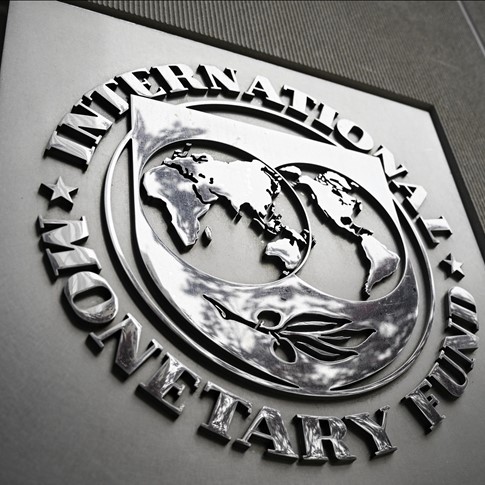

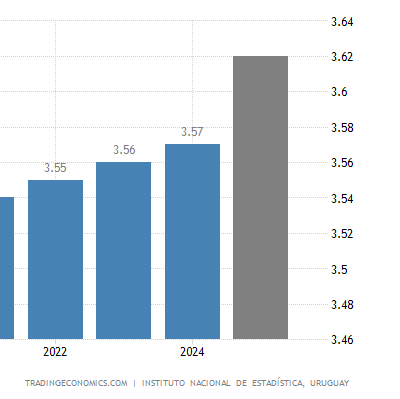
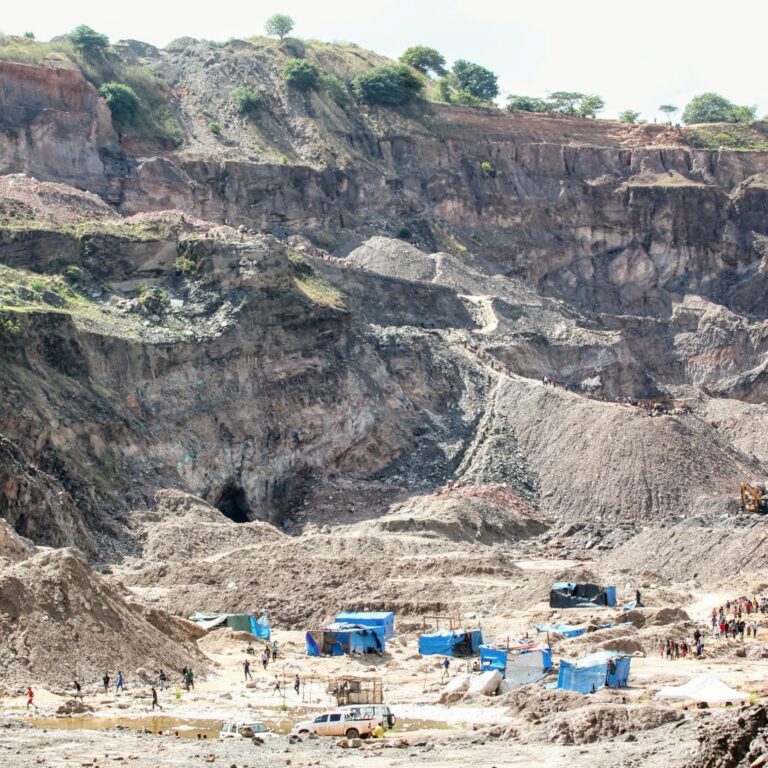





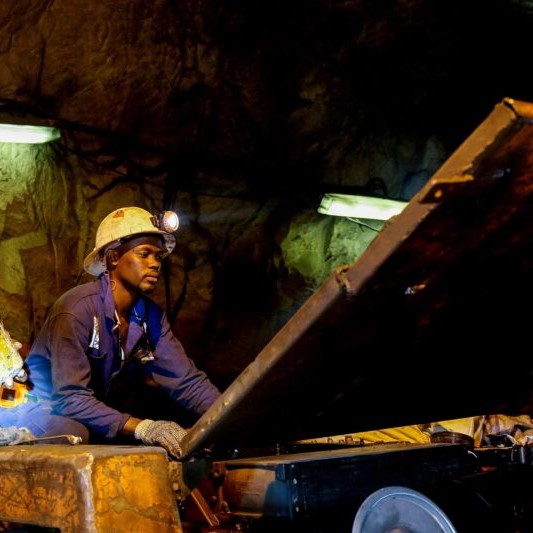

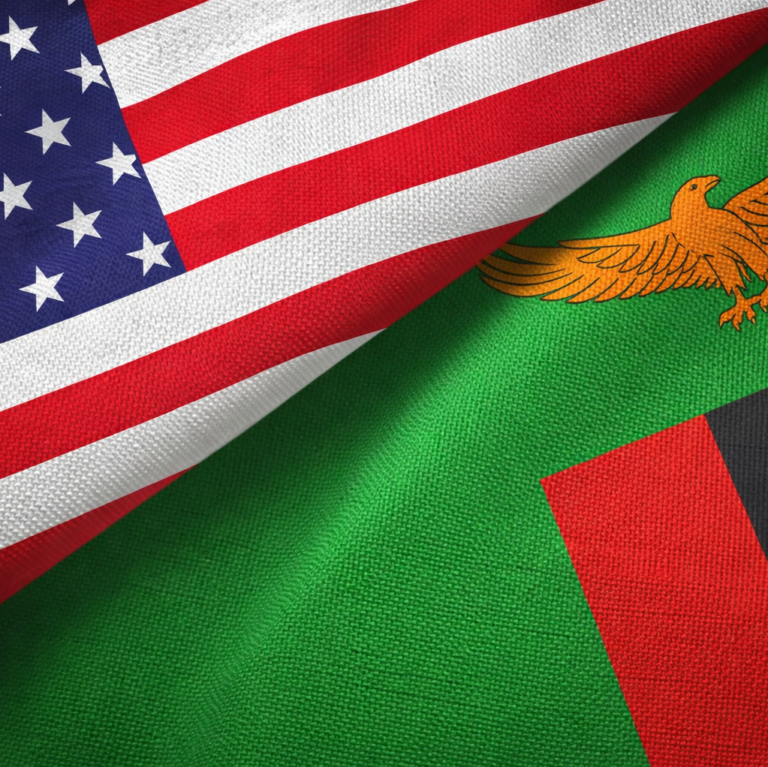
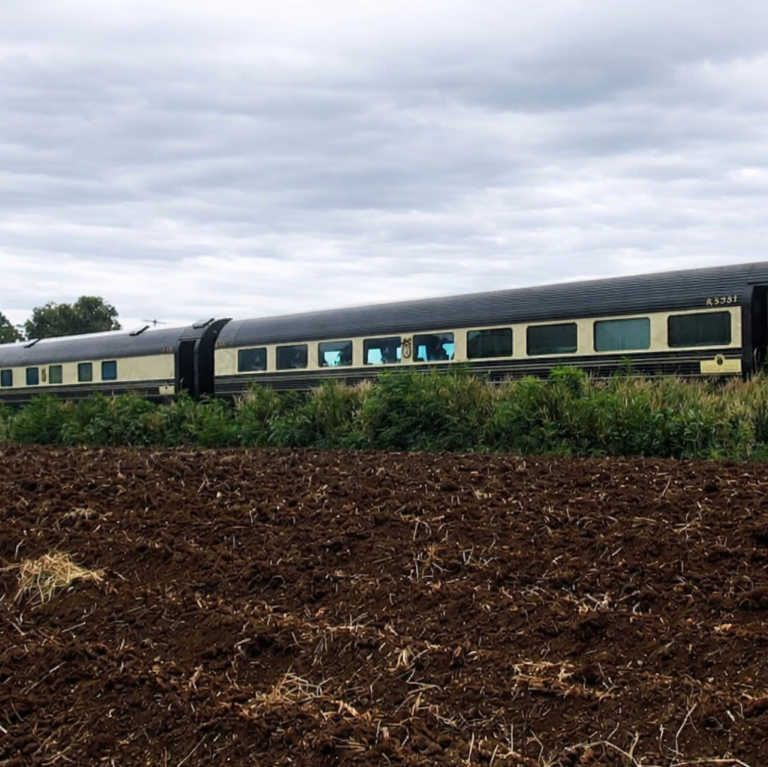
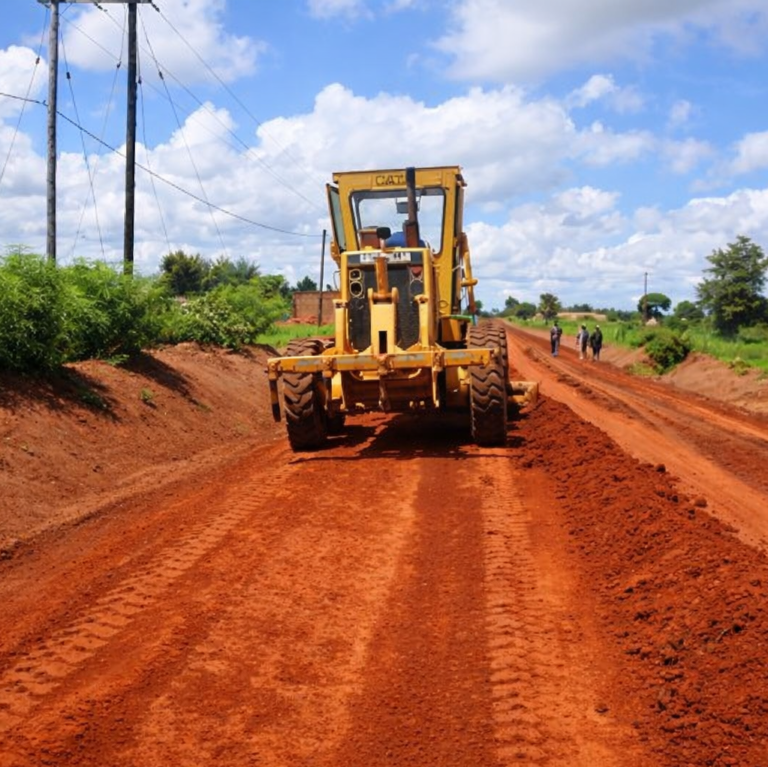
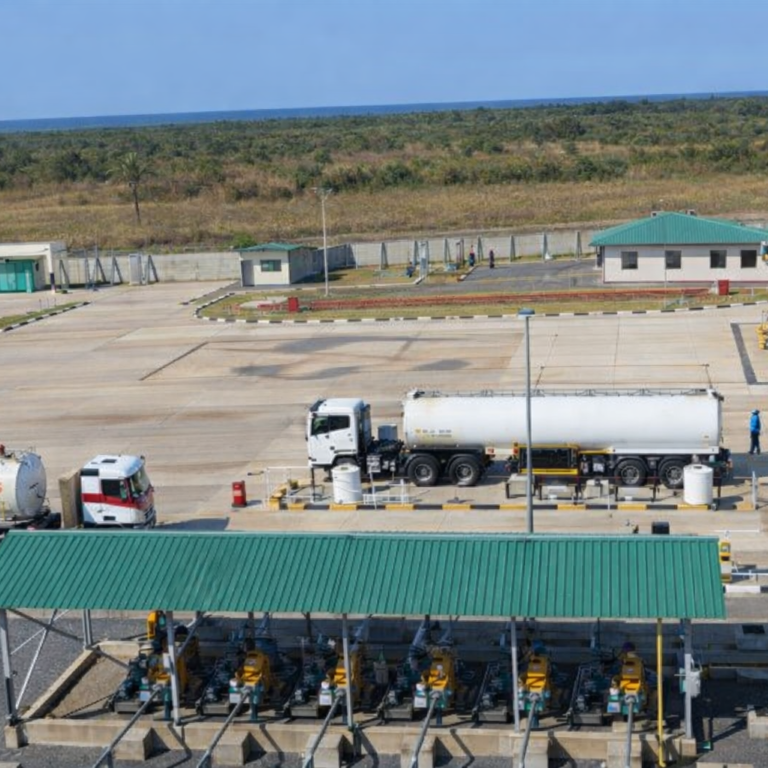

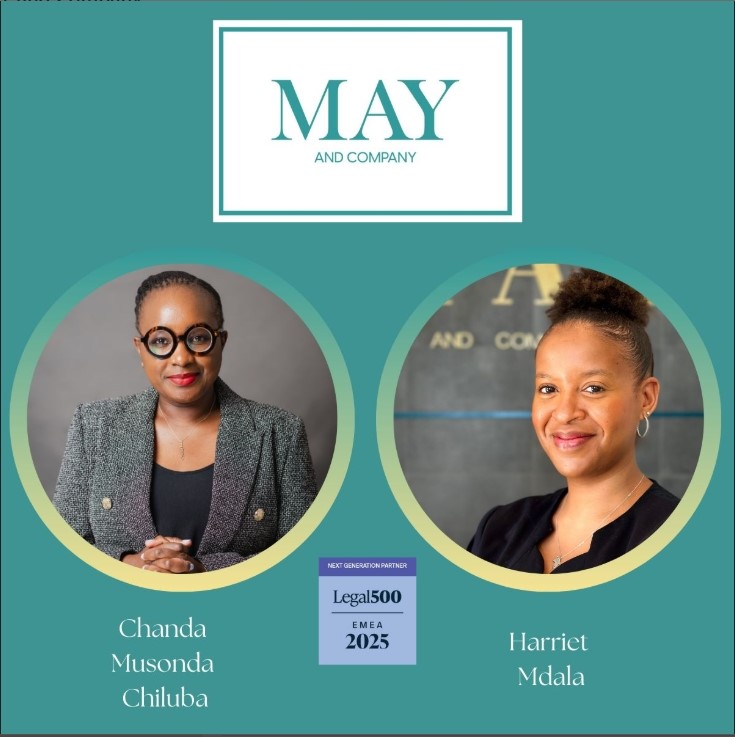
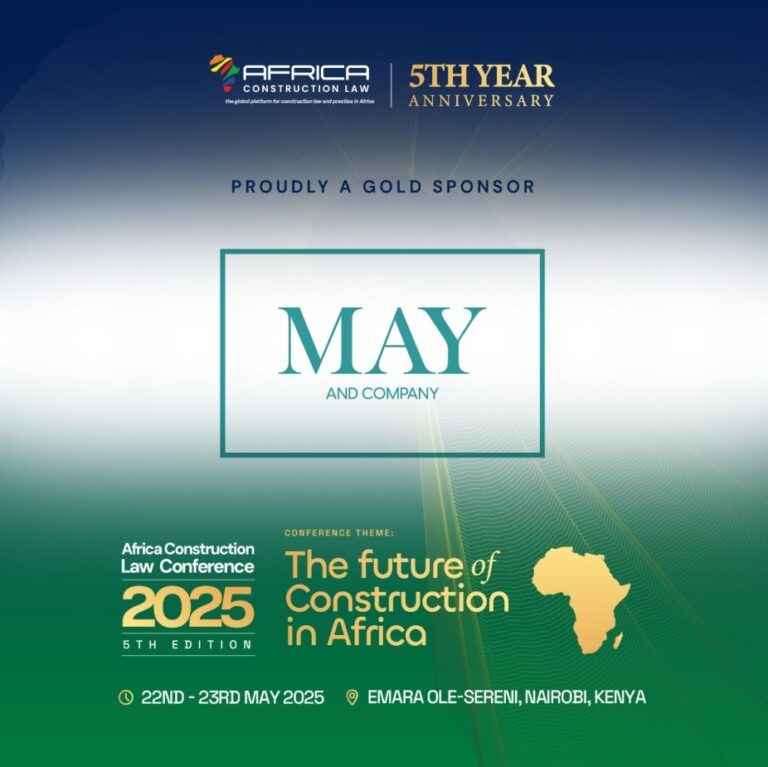


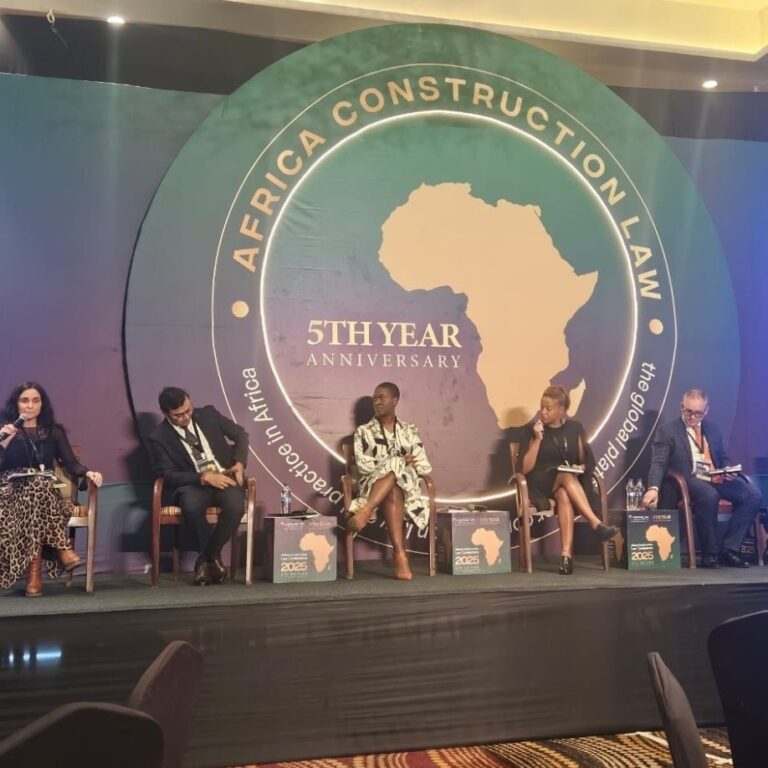



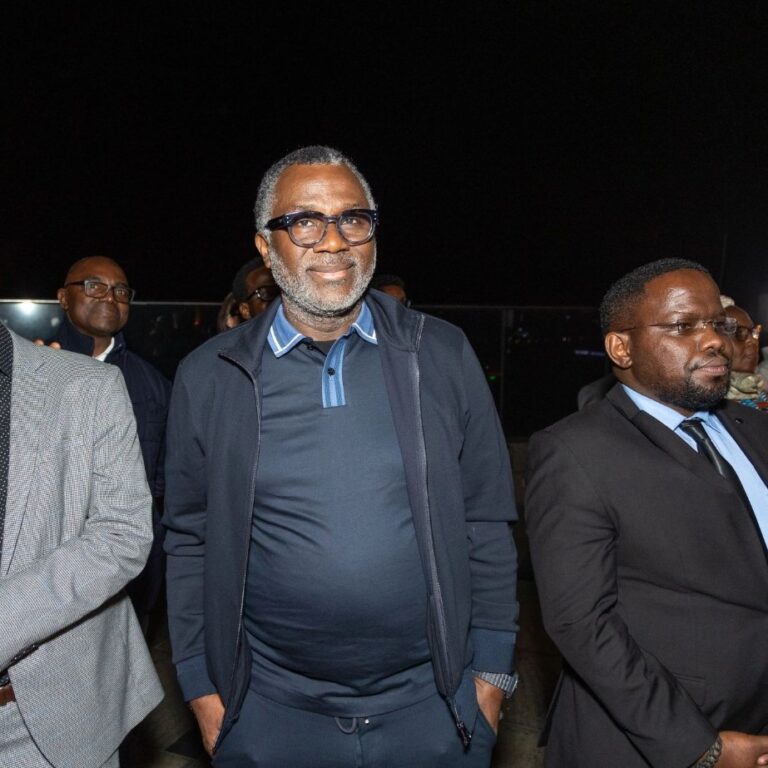

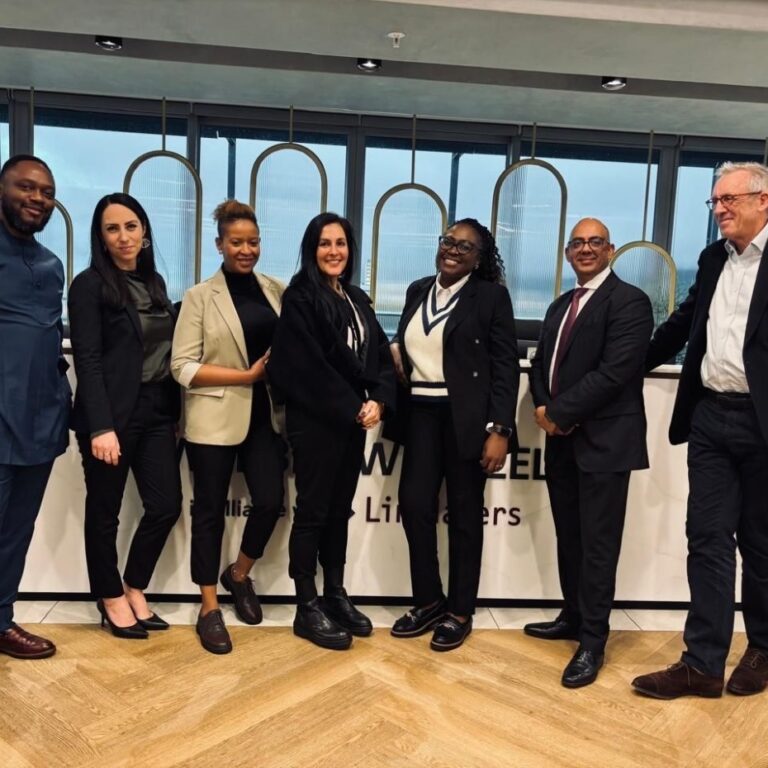








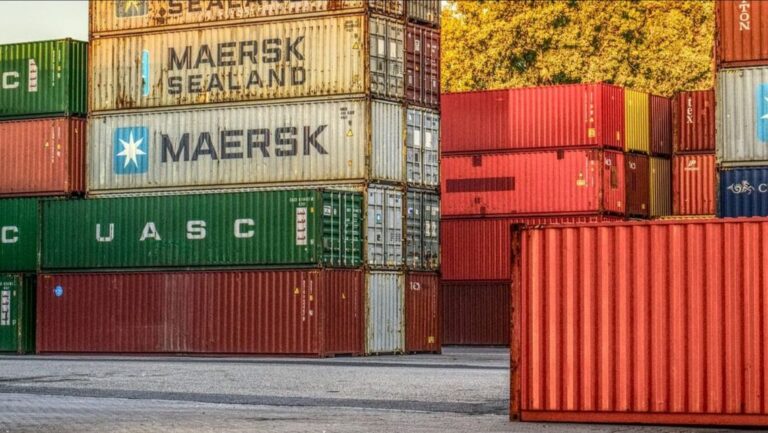









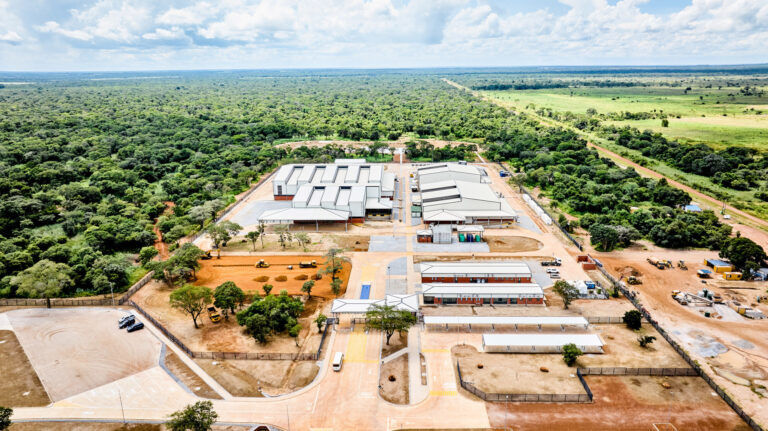



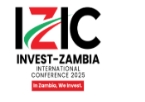







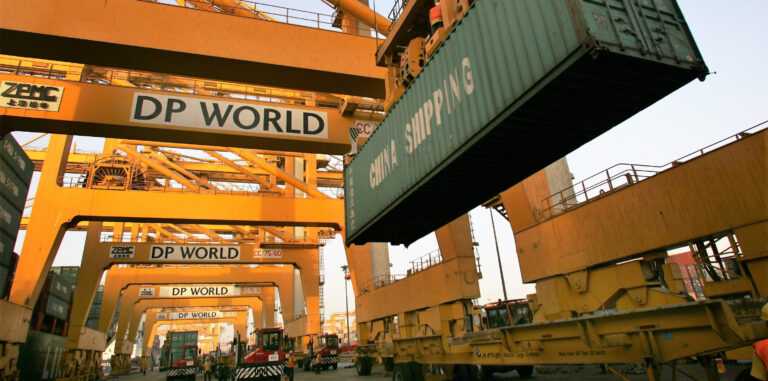







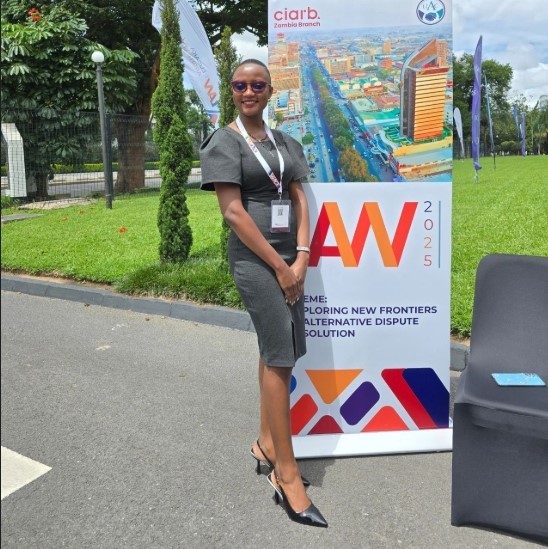


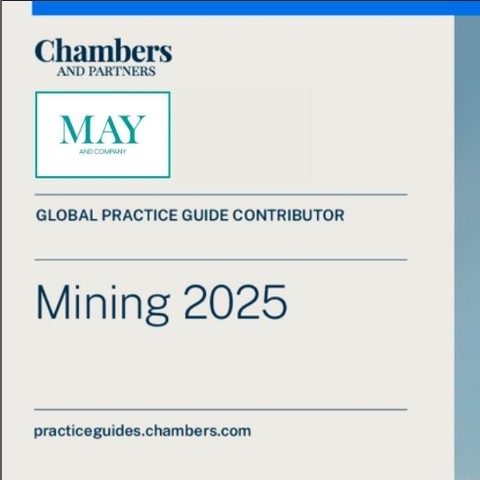

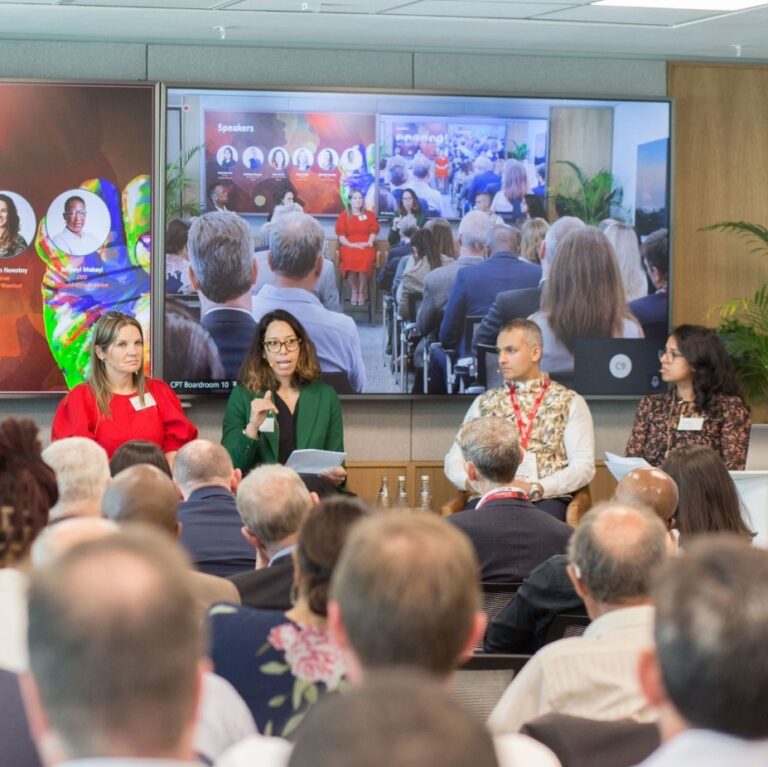

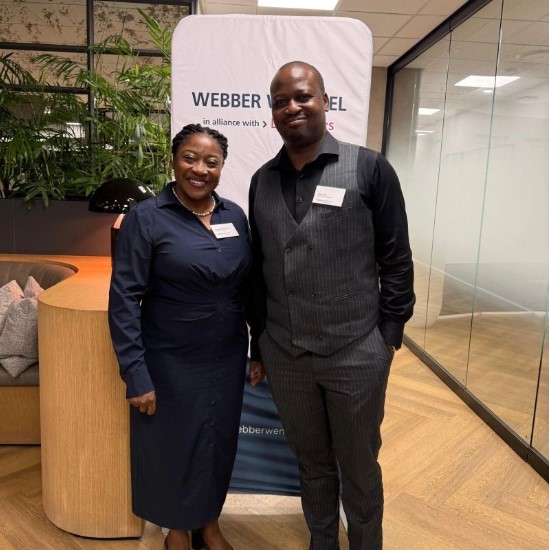





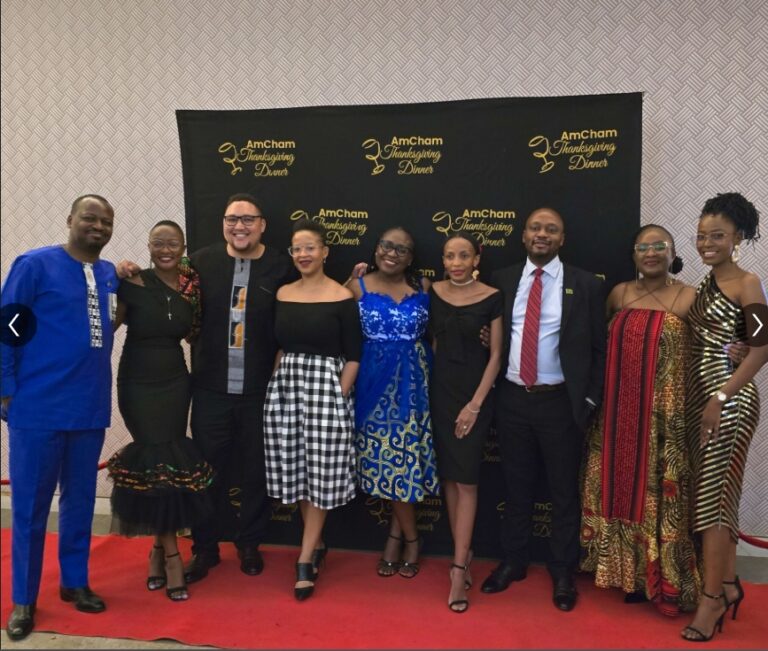


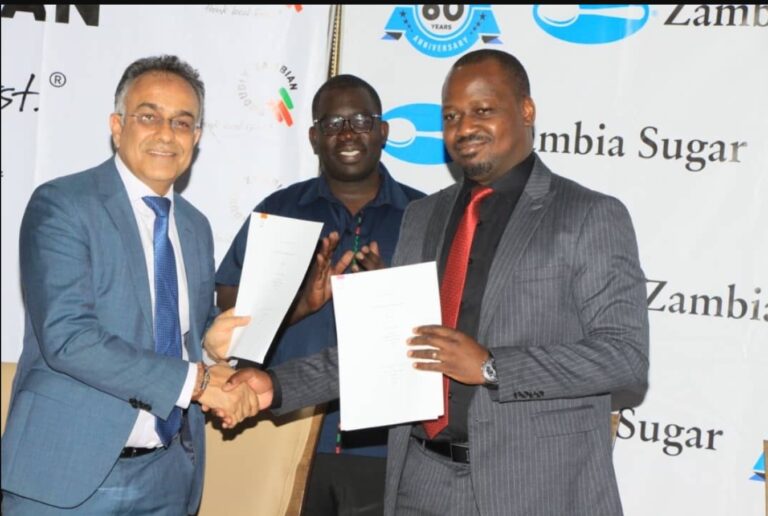
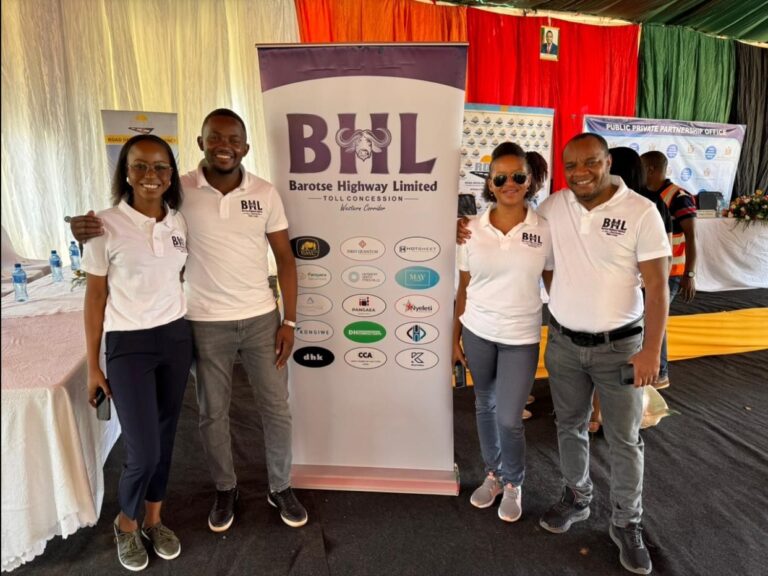
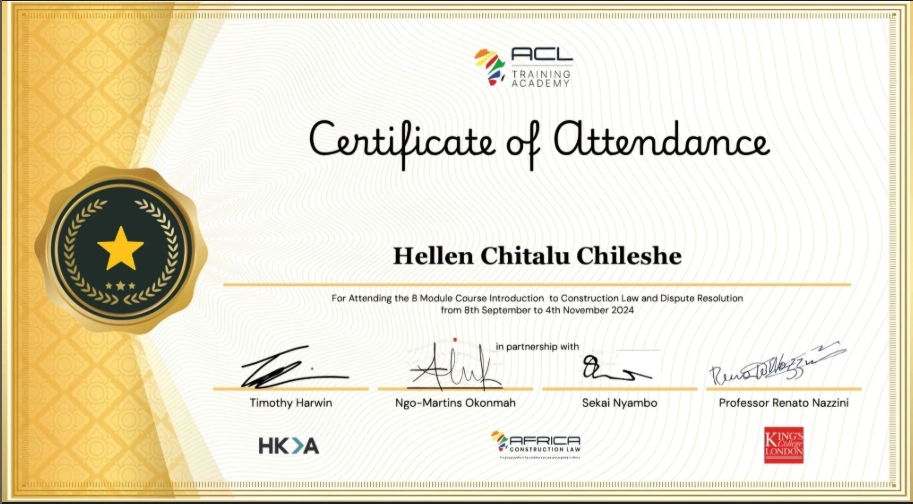
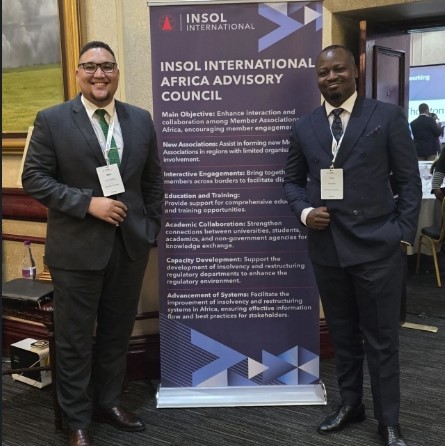


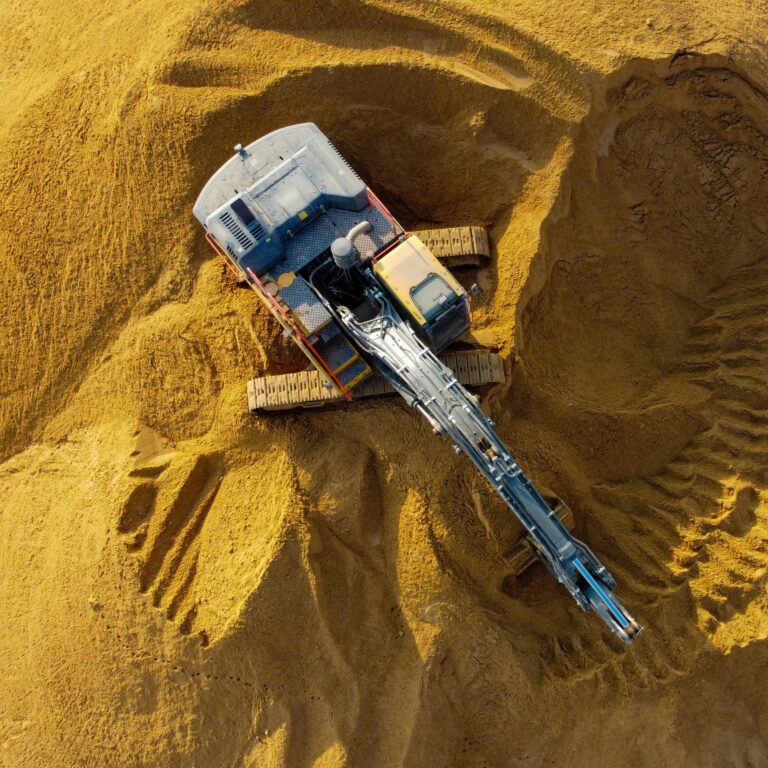


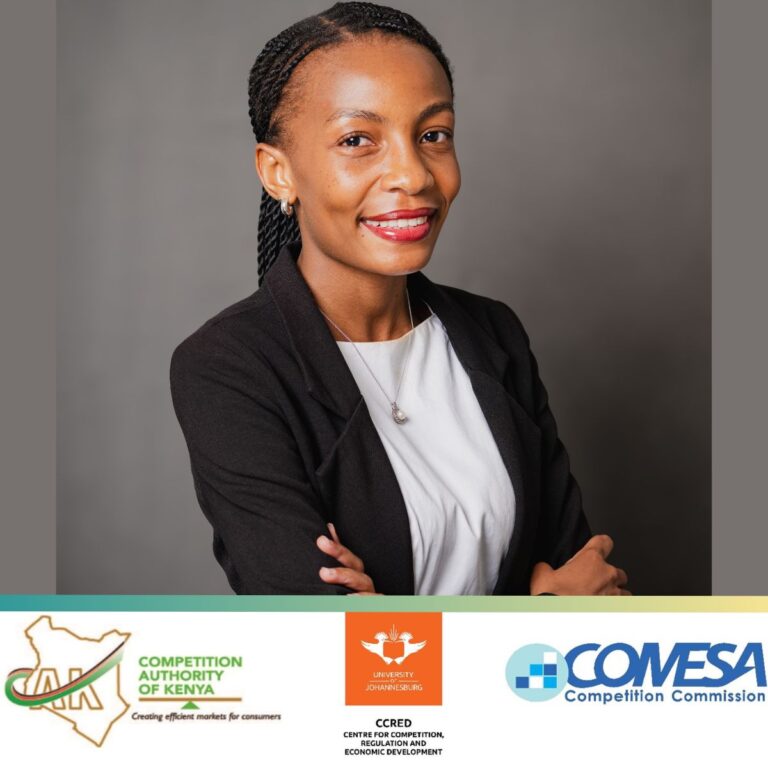
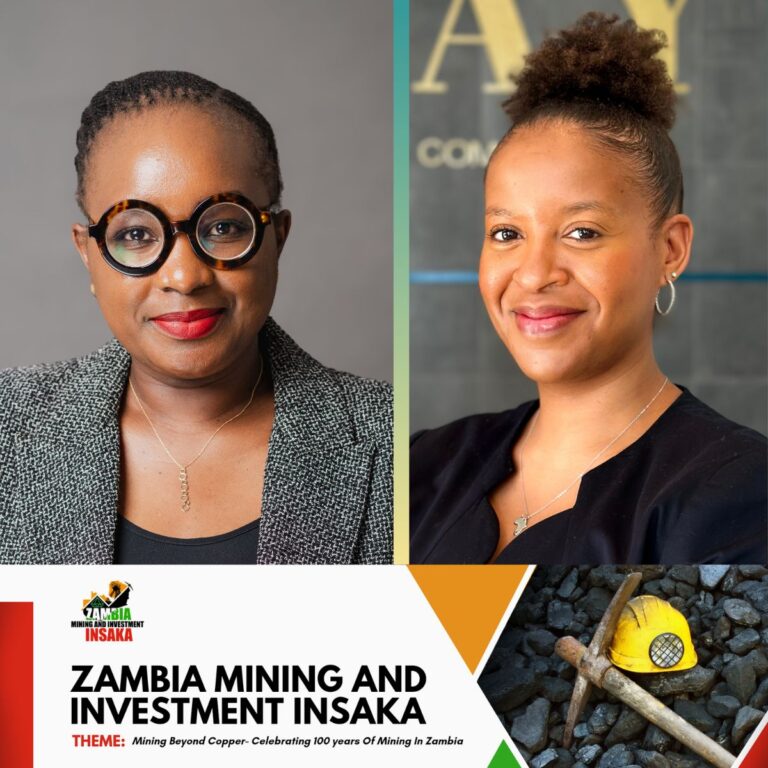
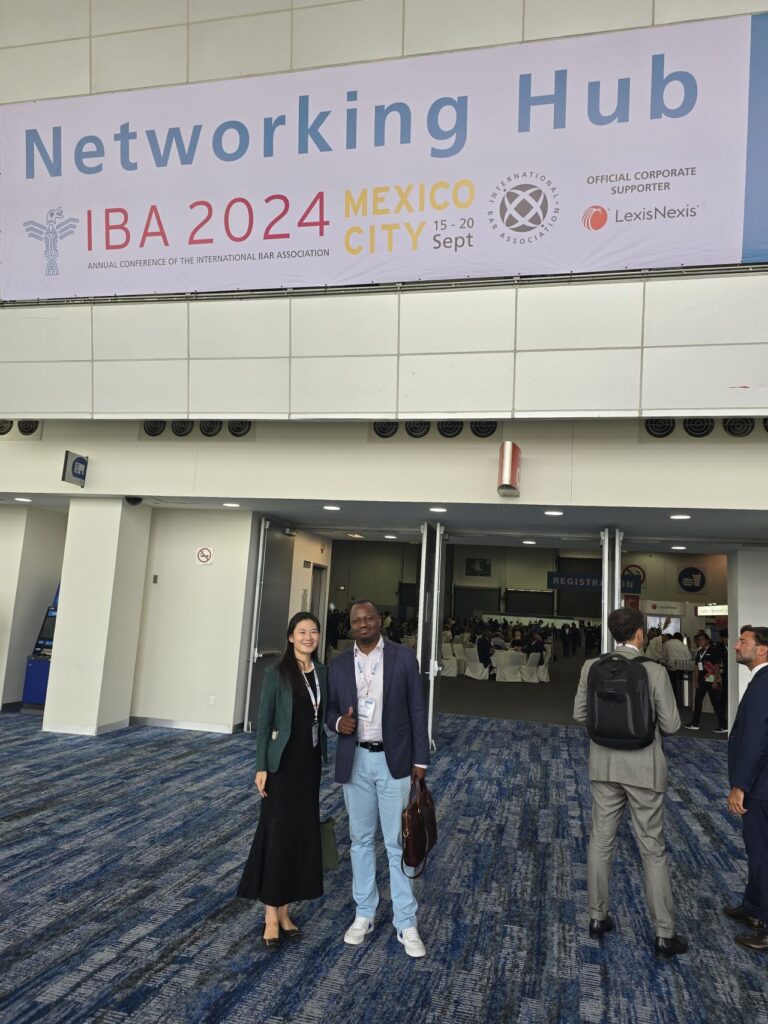
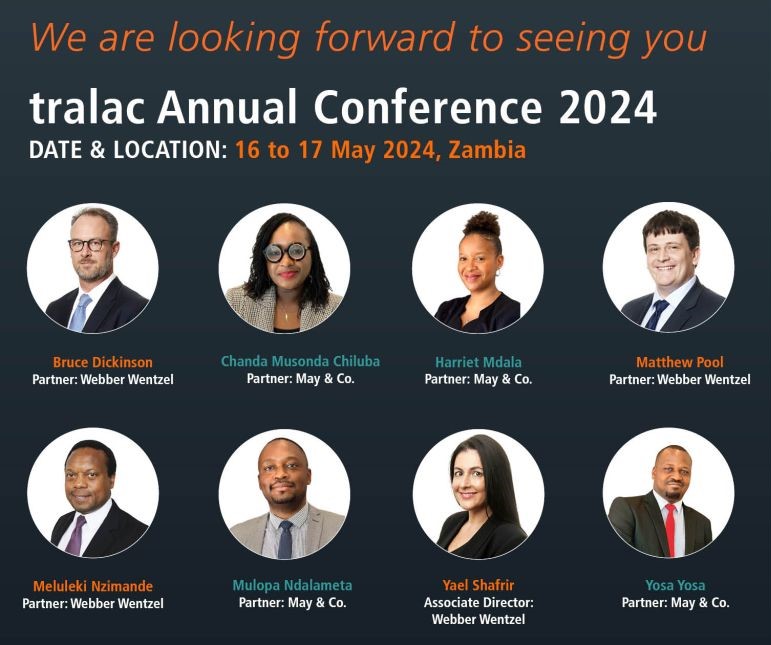

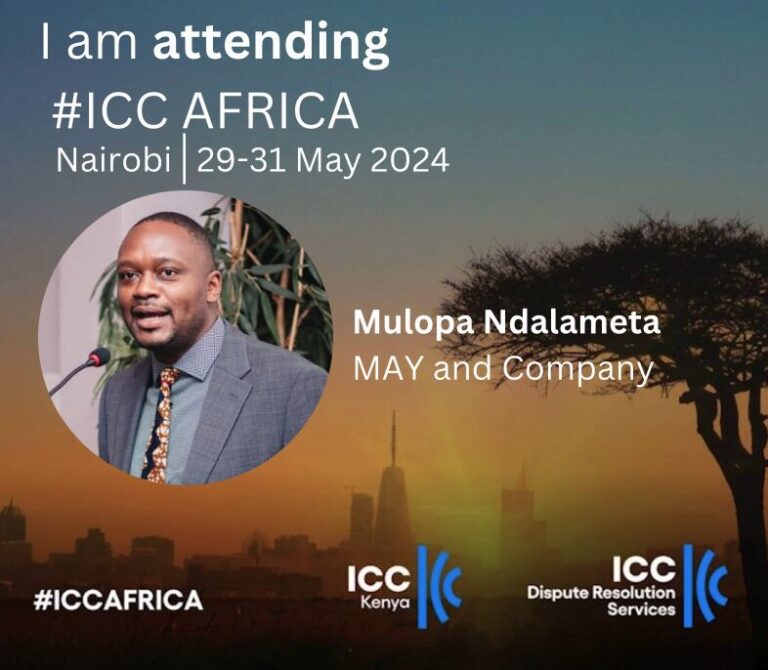


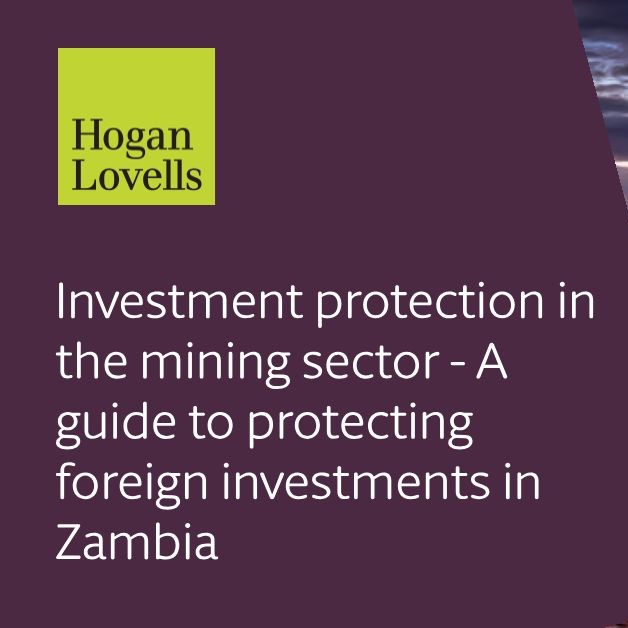


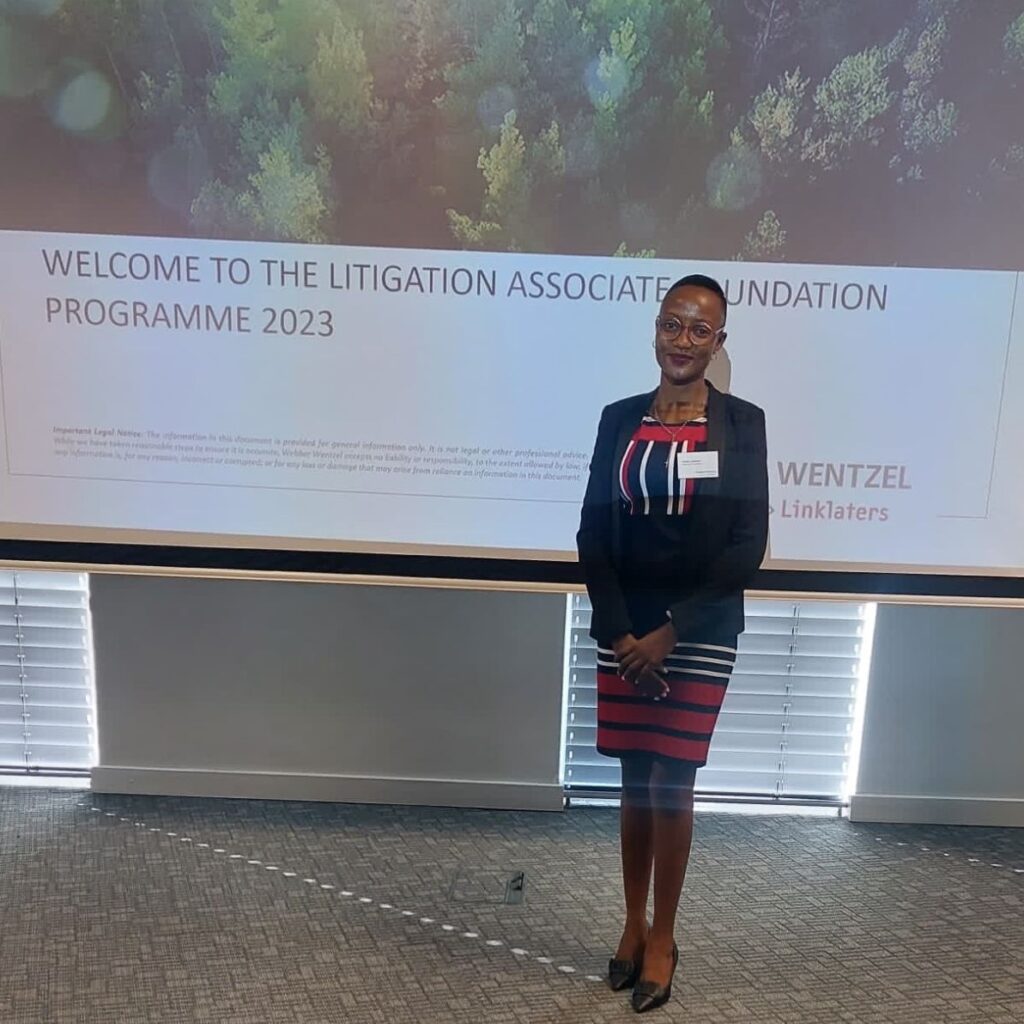








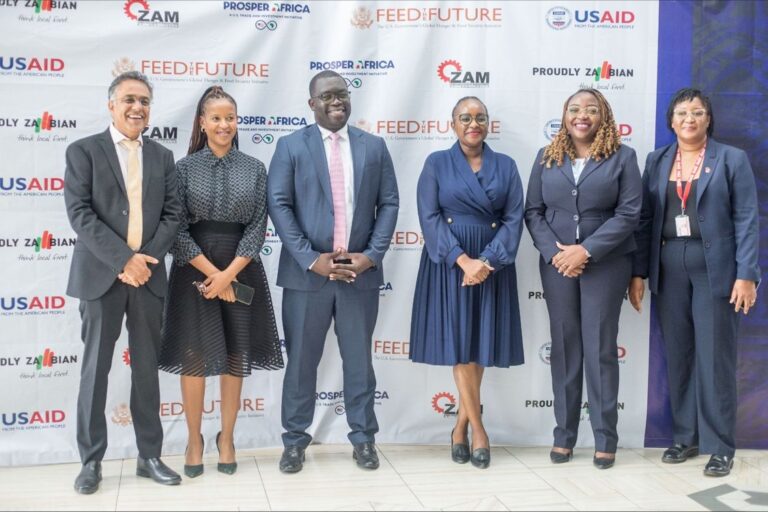




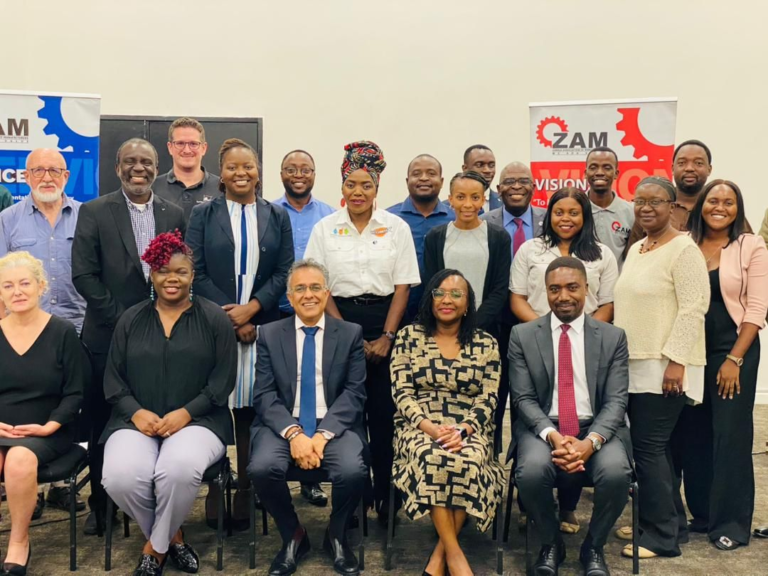
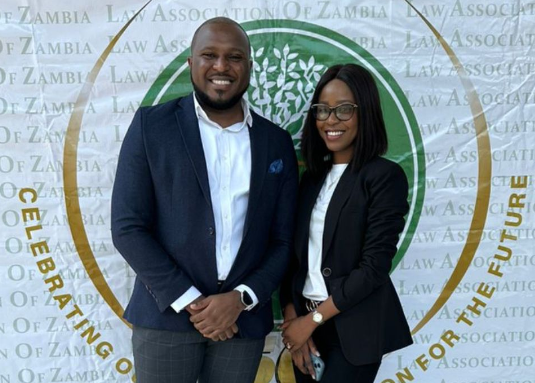

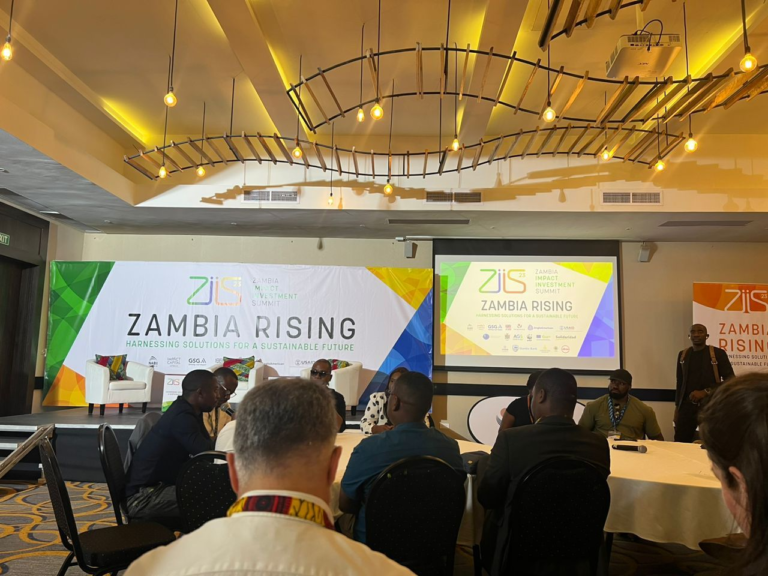











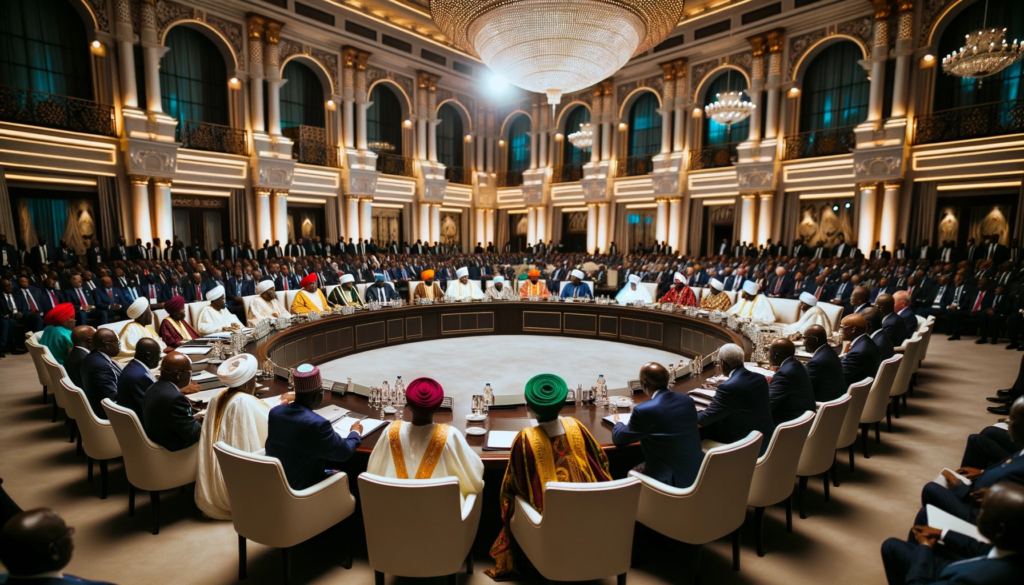












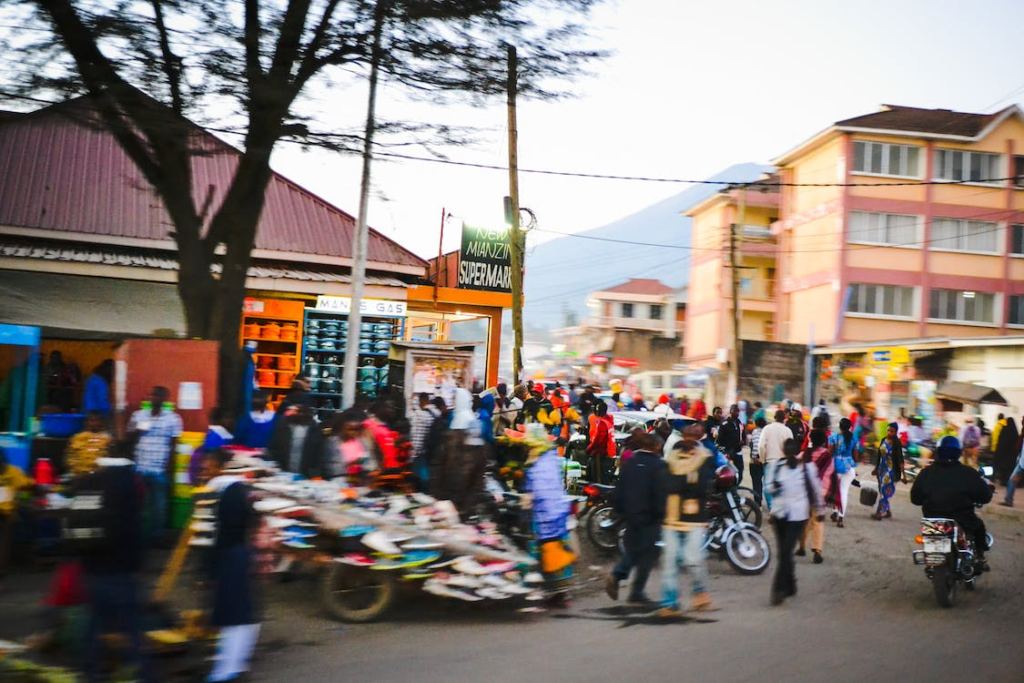
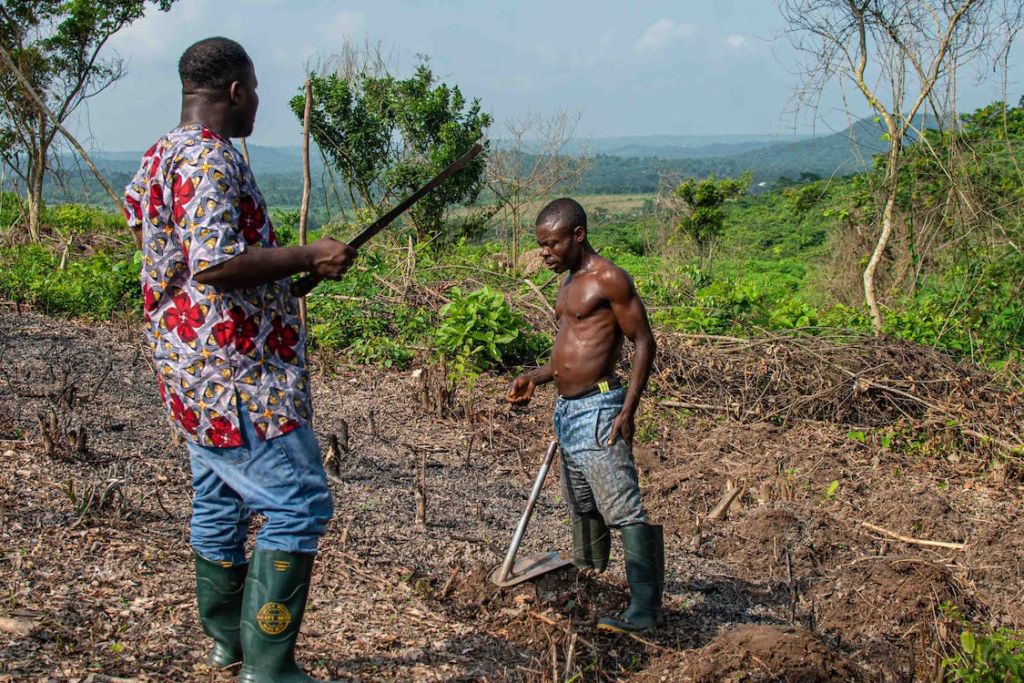
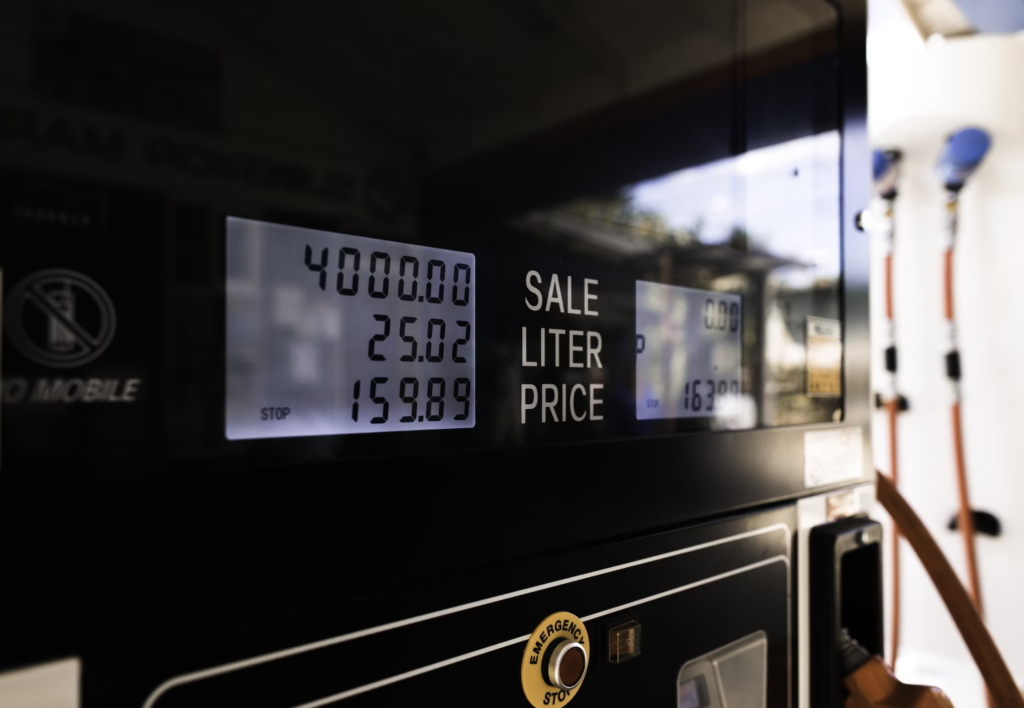




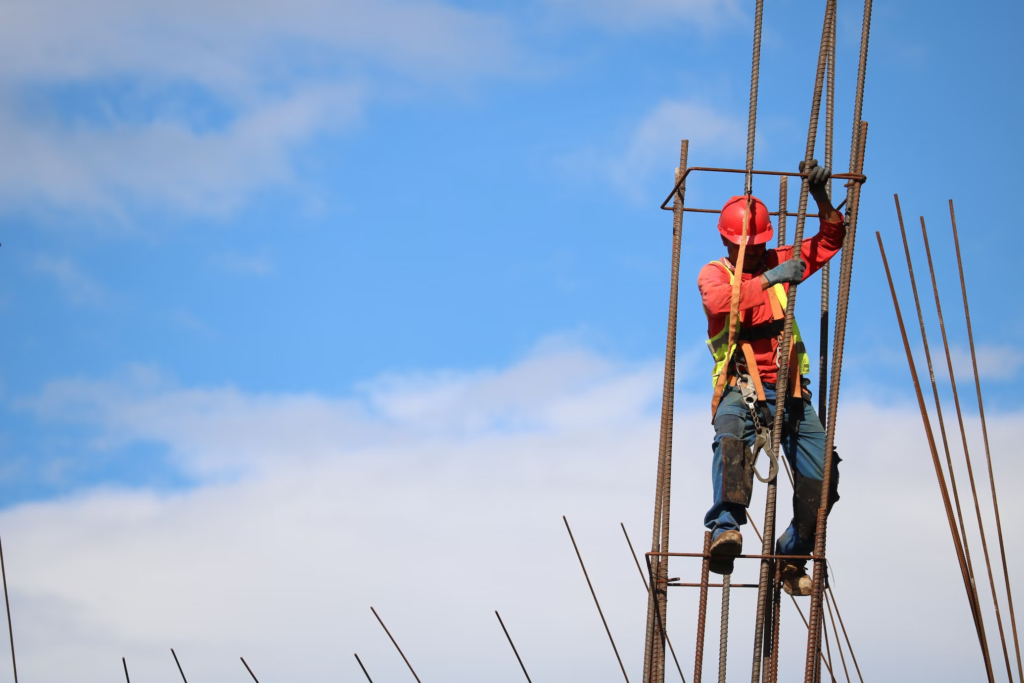











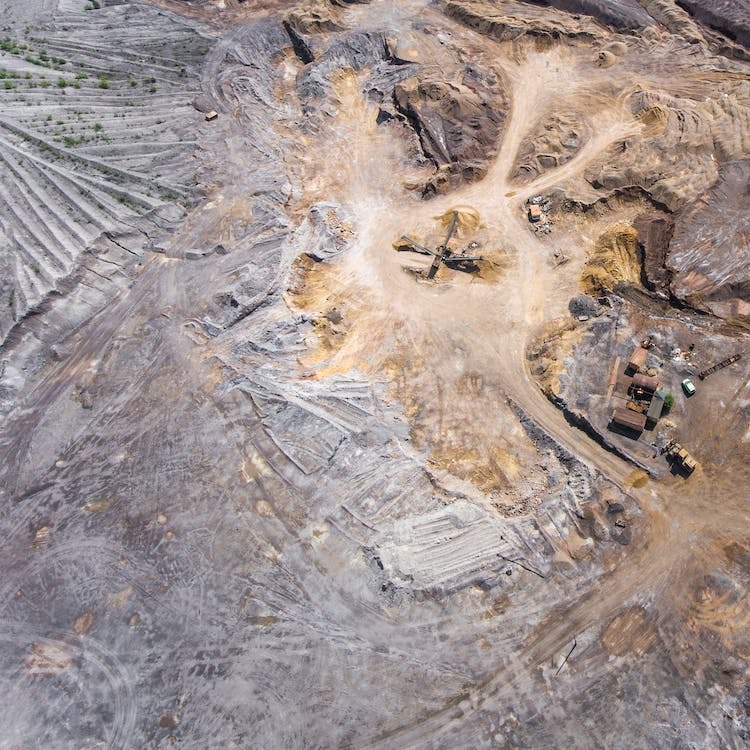



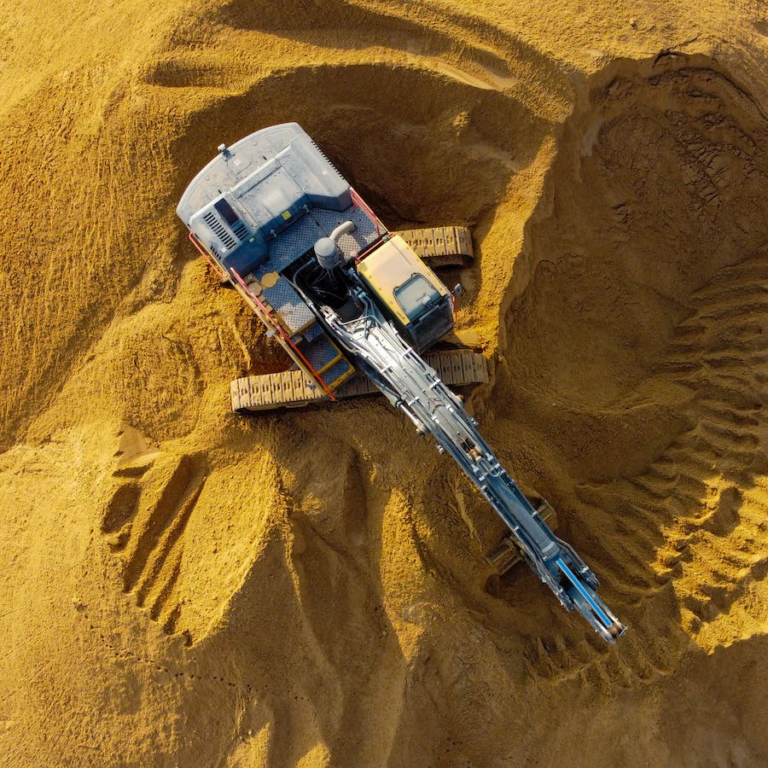




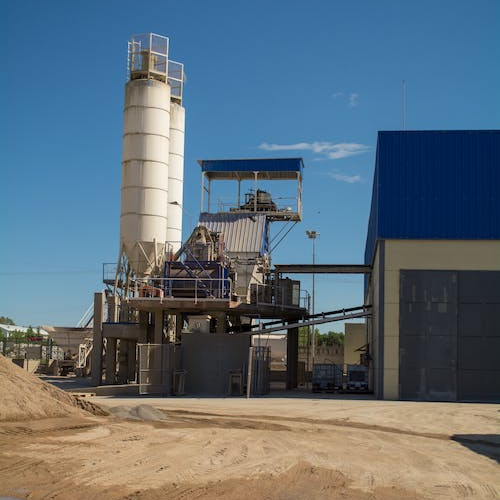






ZCCM-IH has partnered with the Ministry of Finance to launch the Zambia National Energy Corporation (ZNEC).